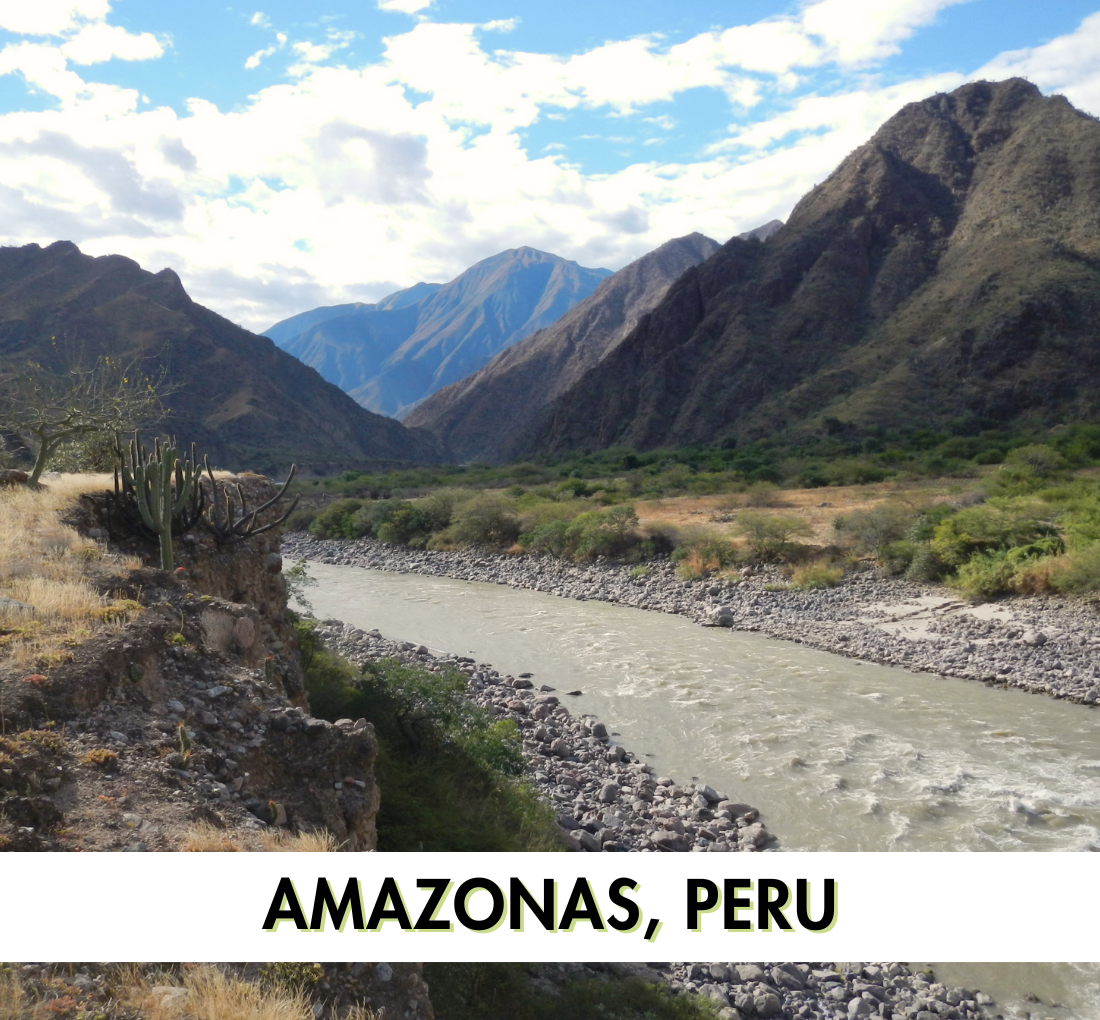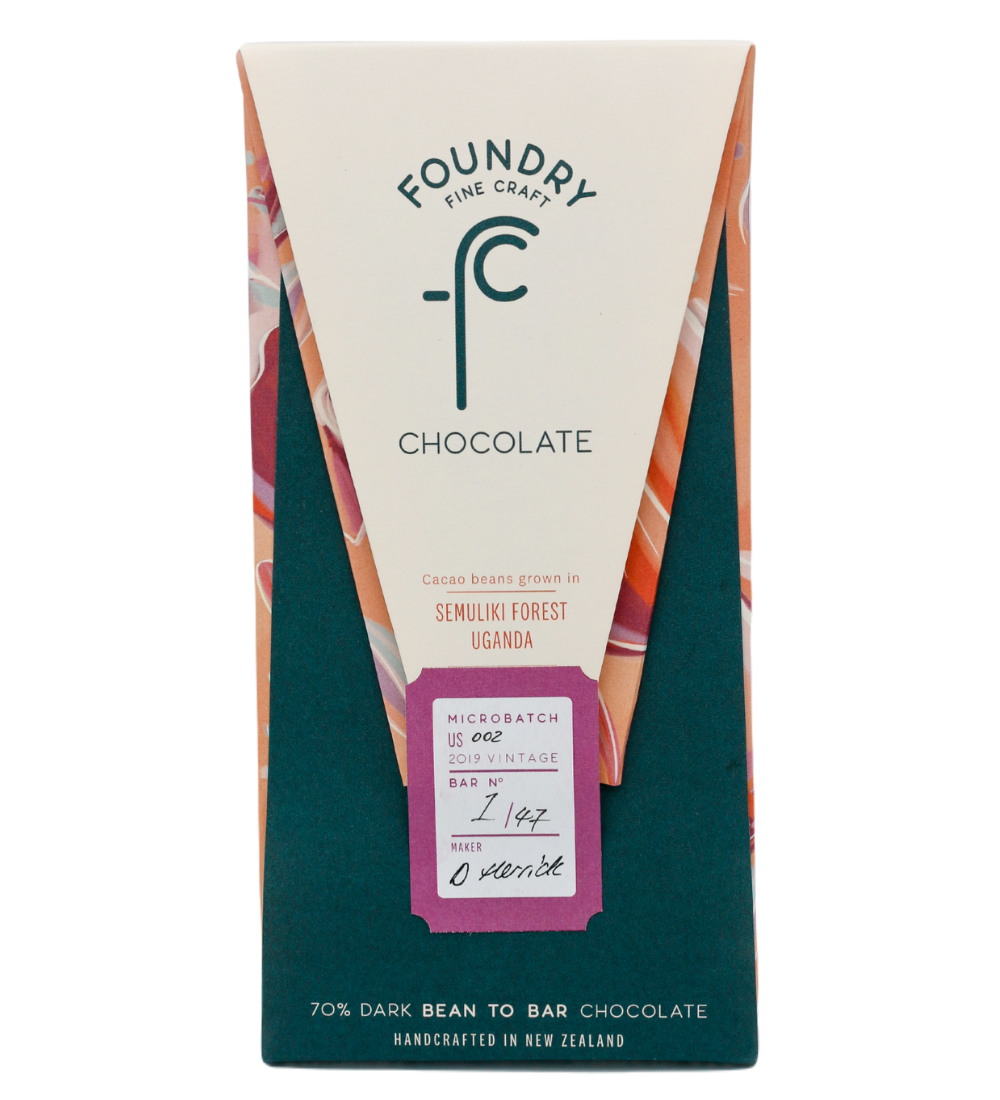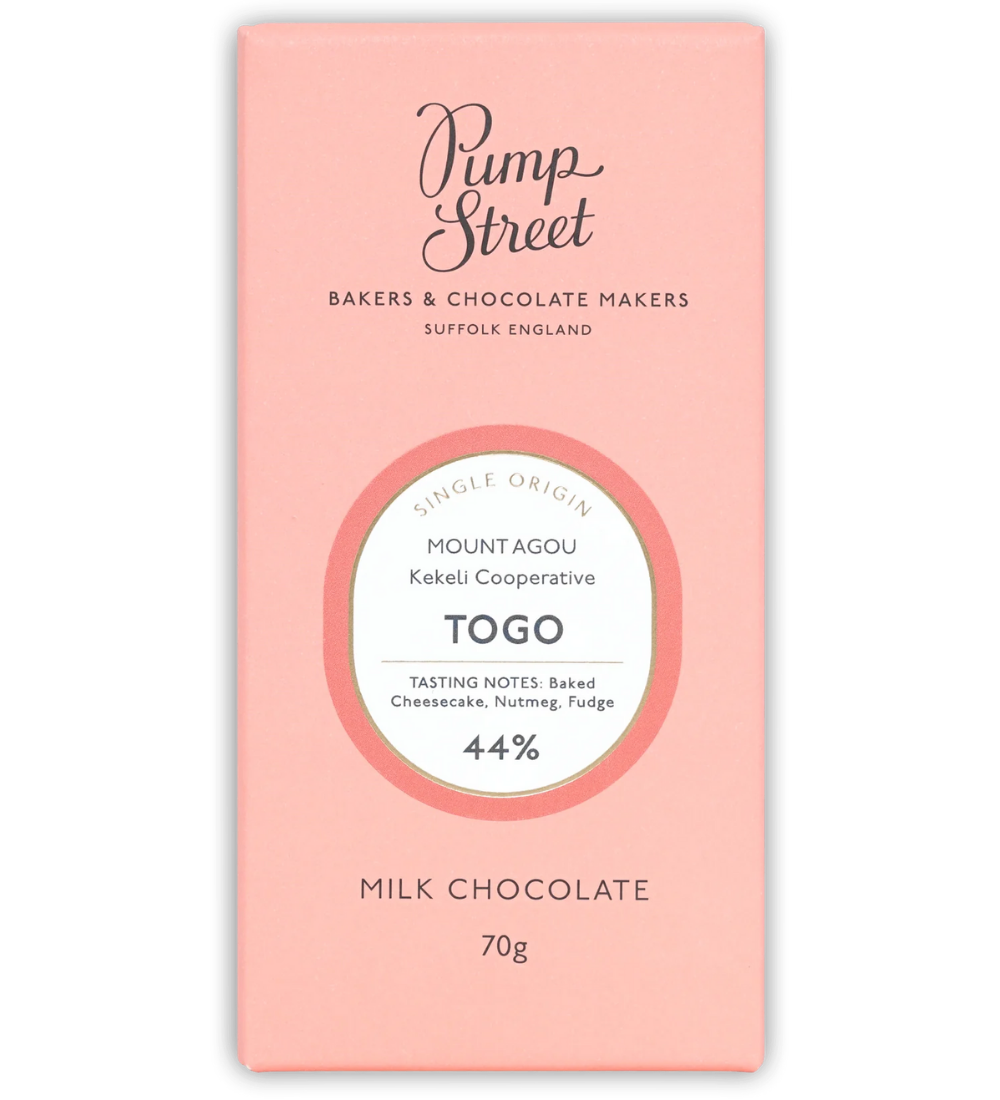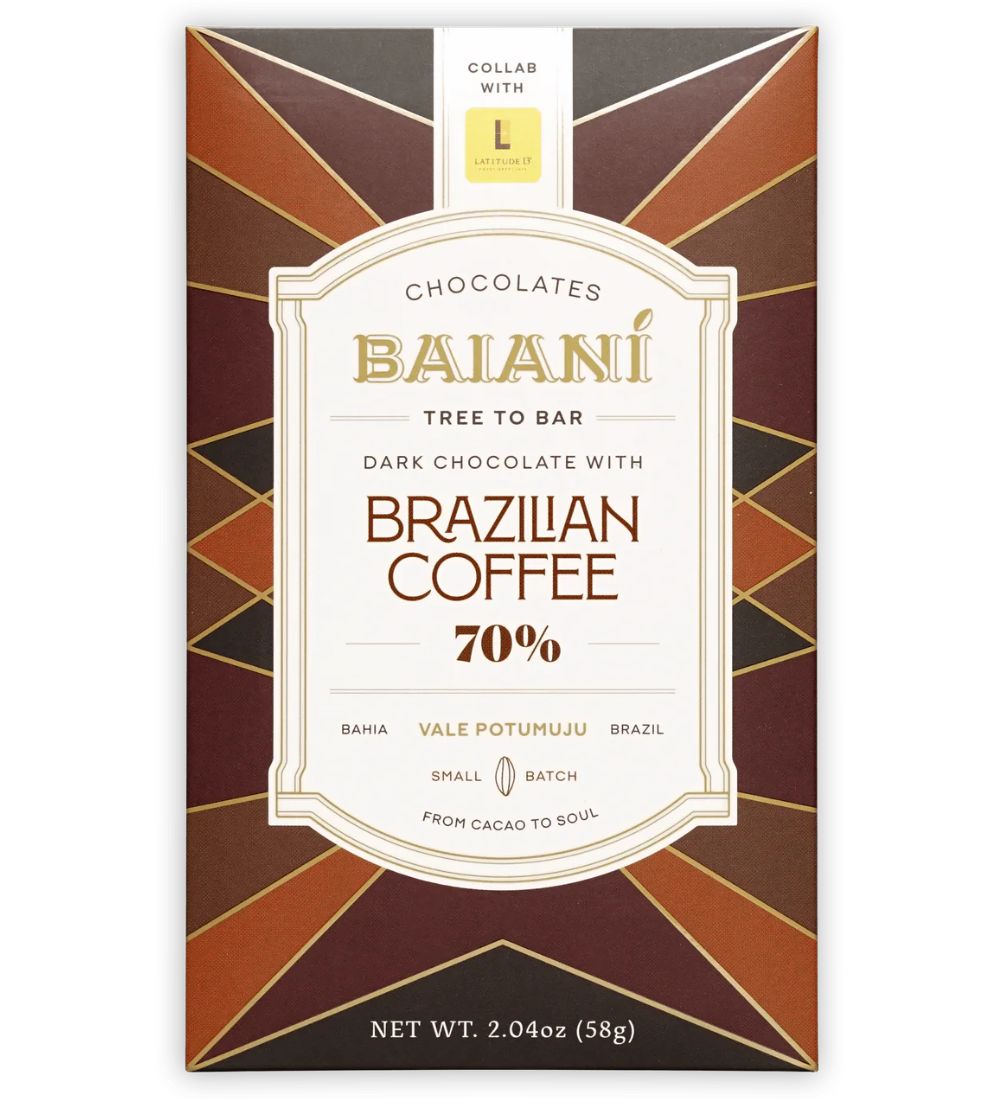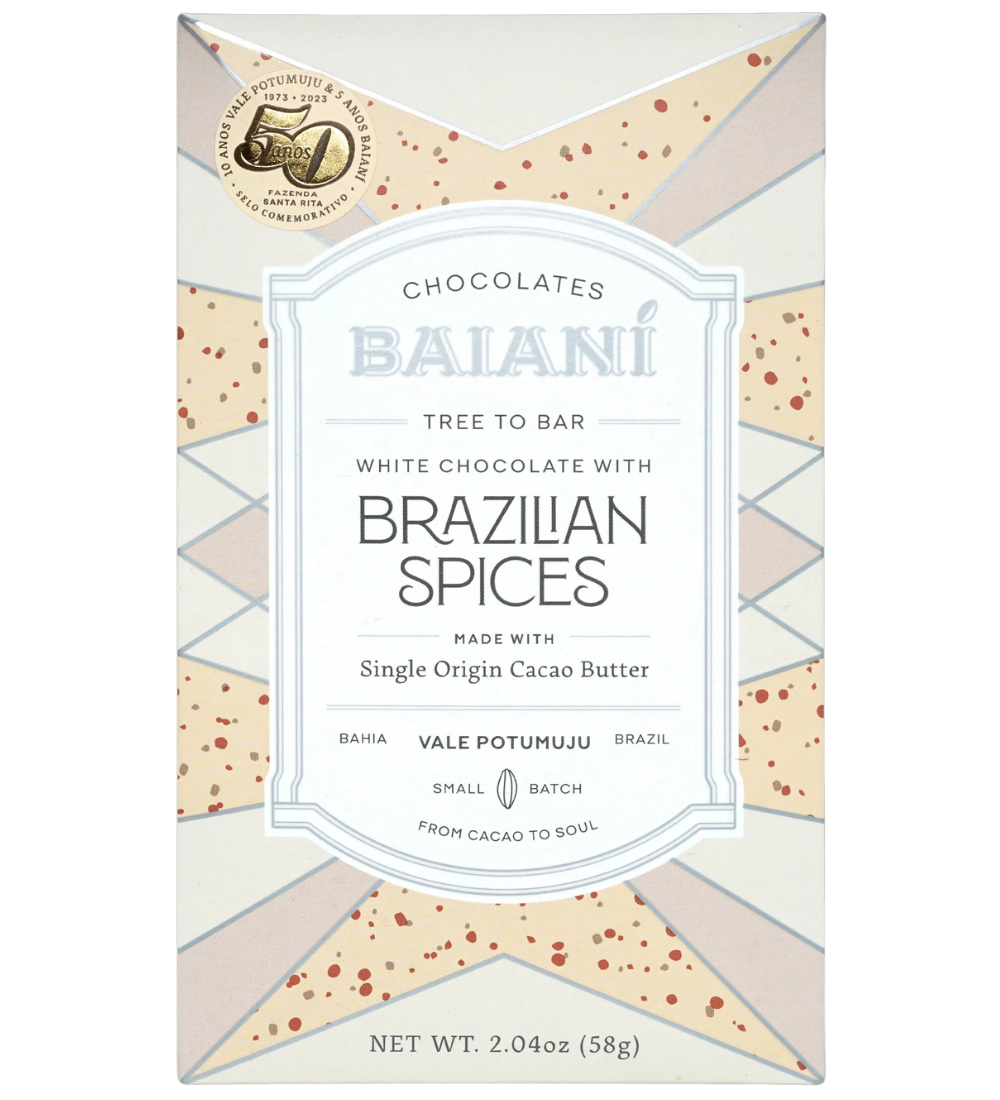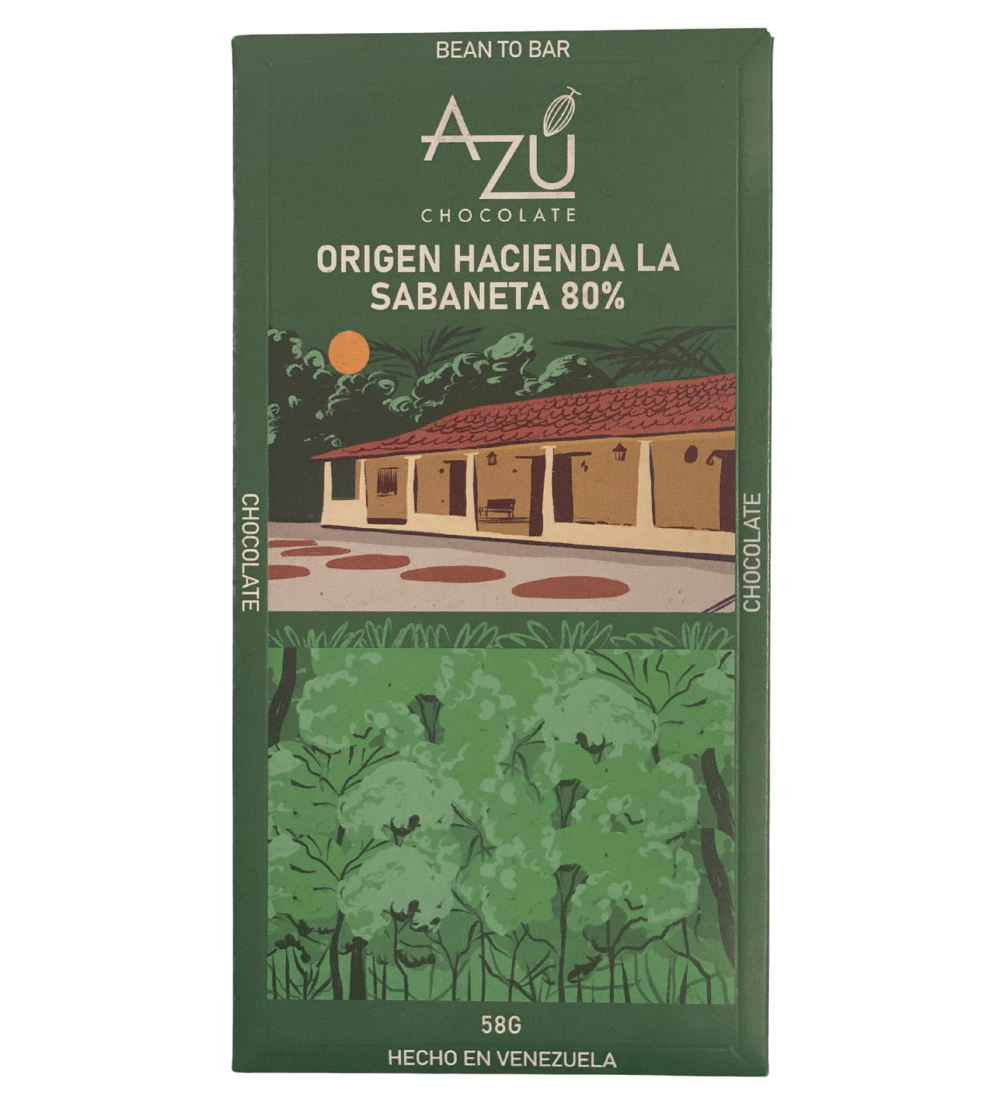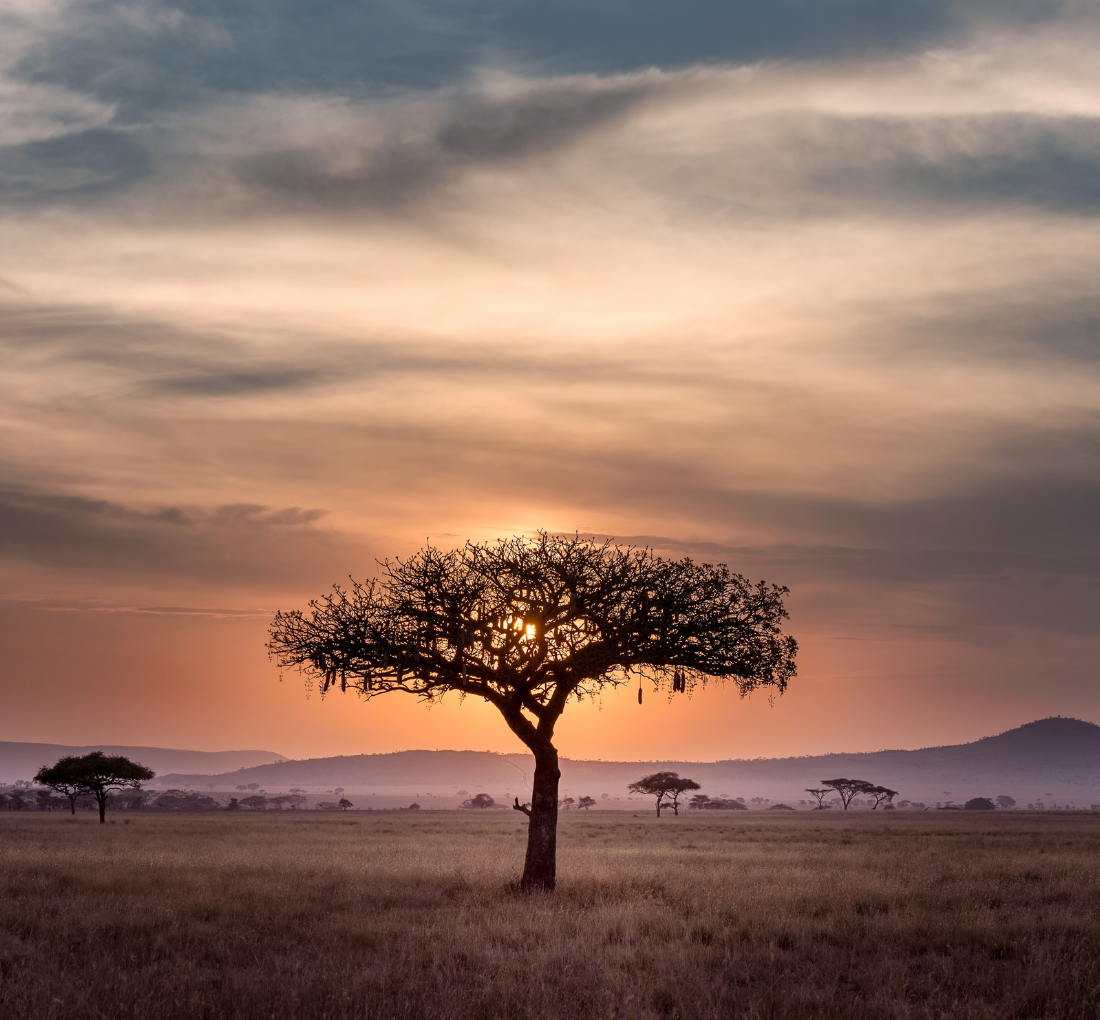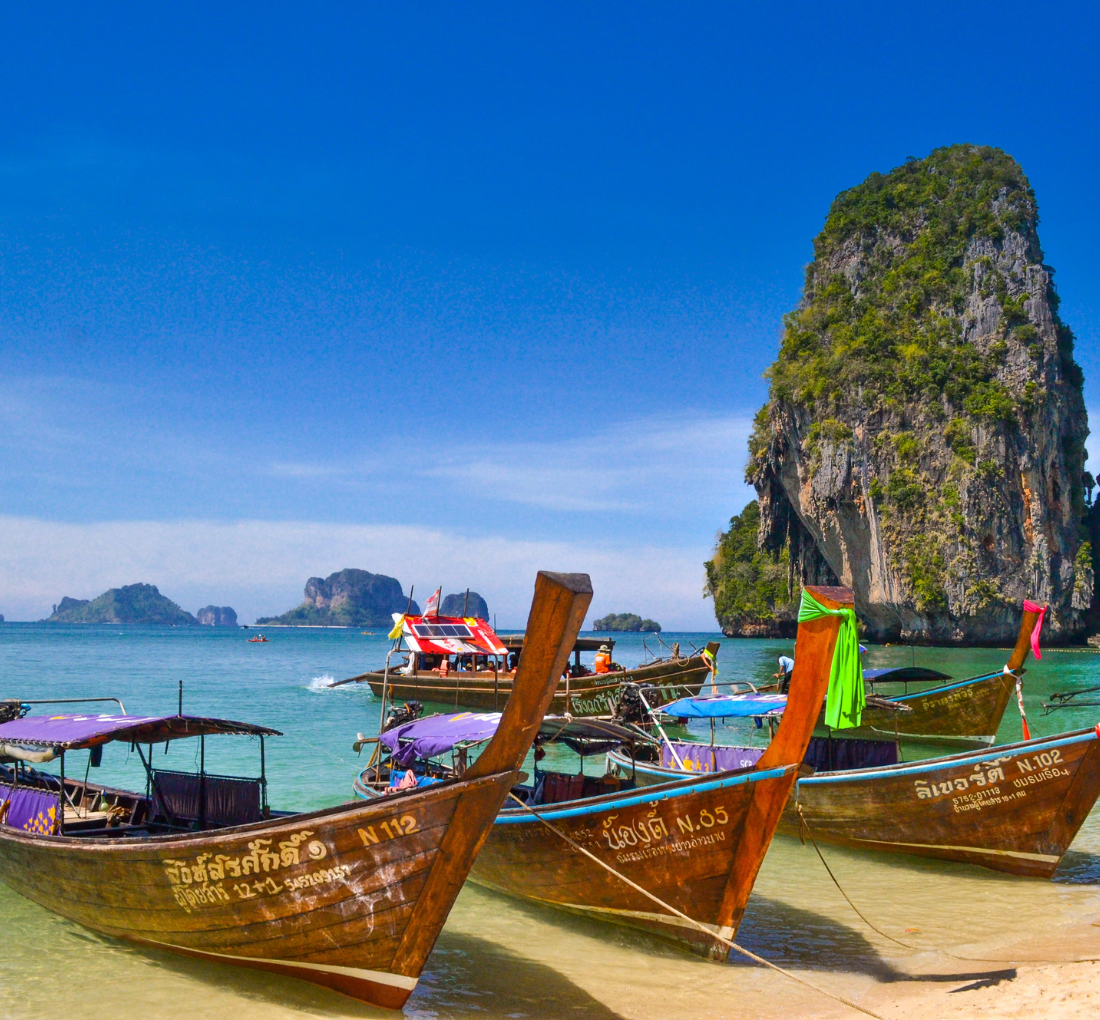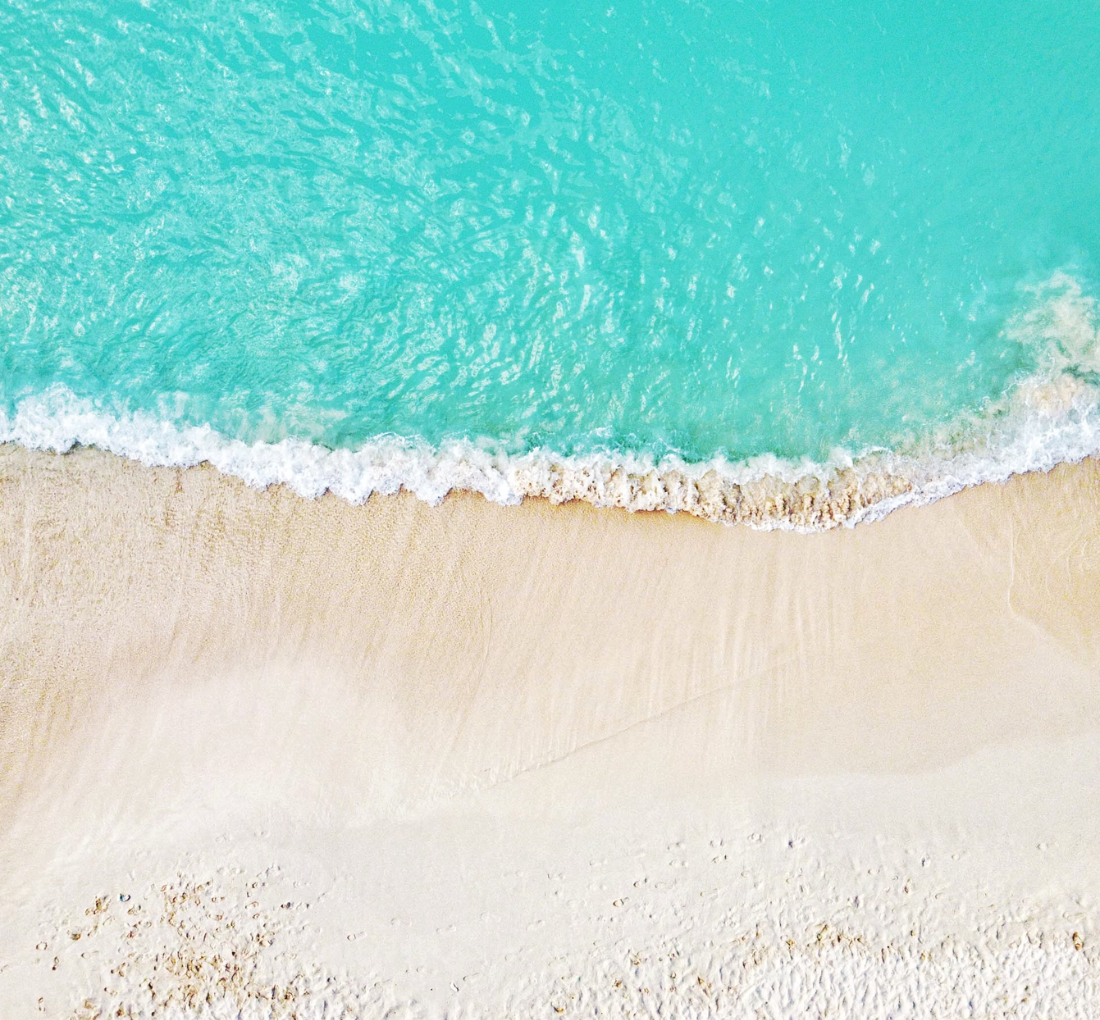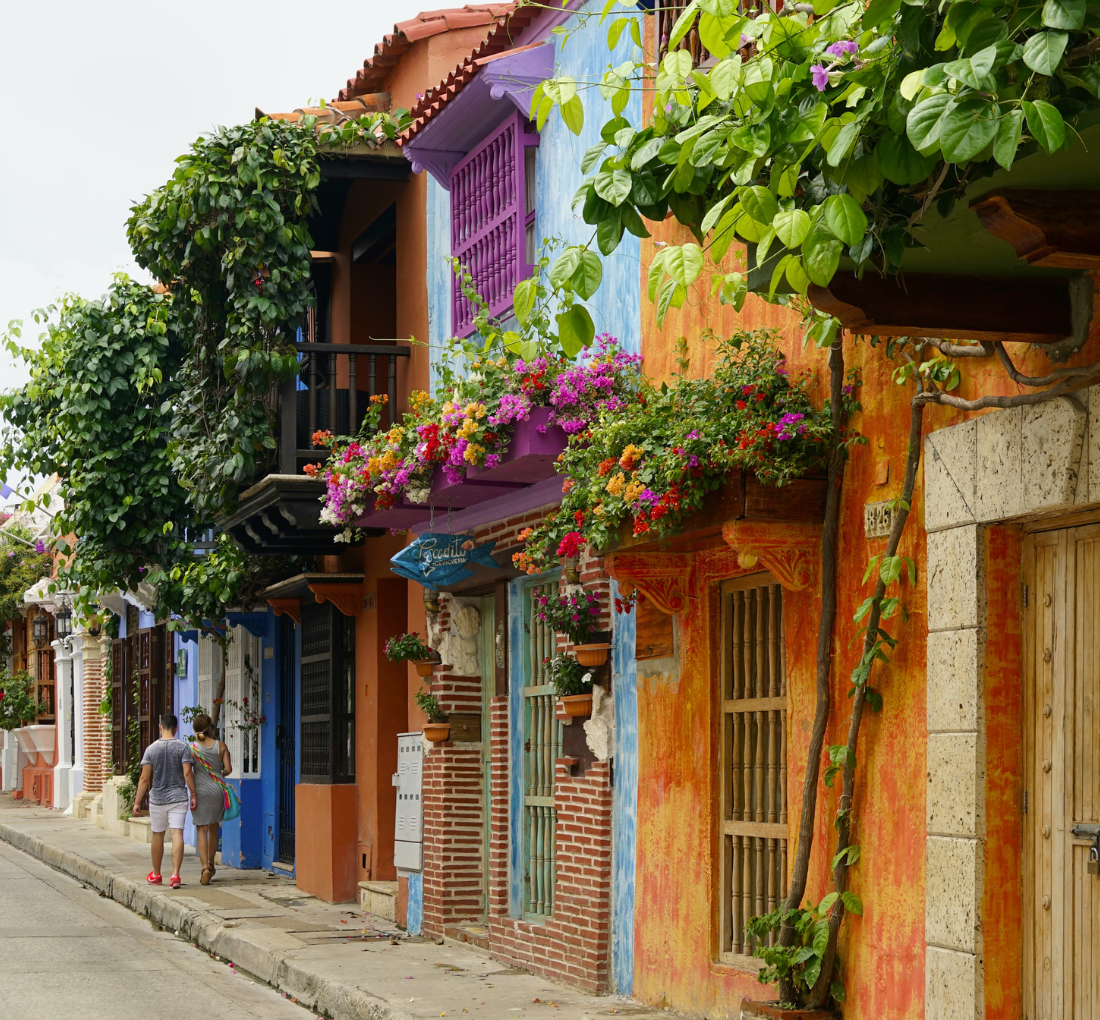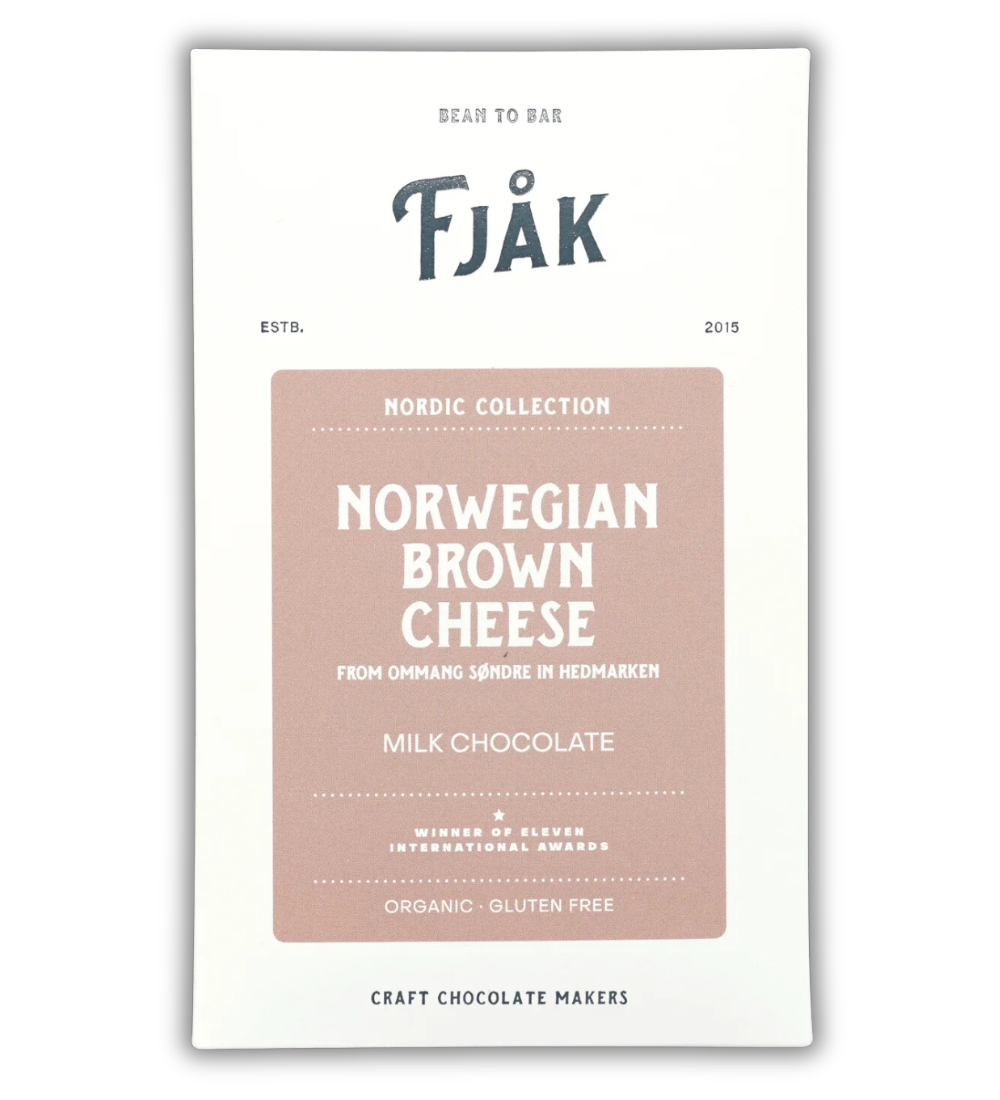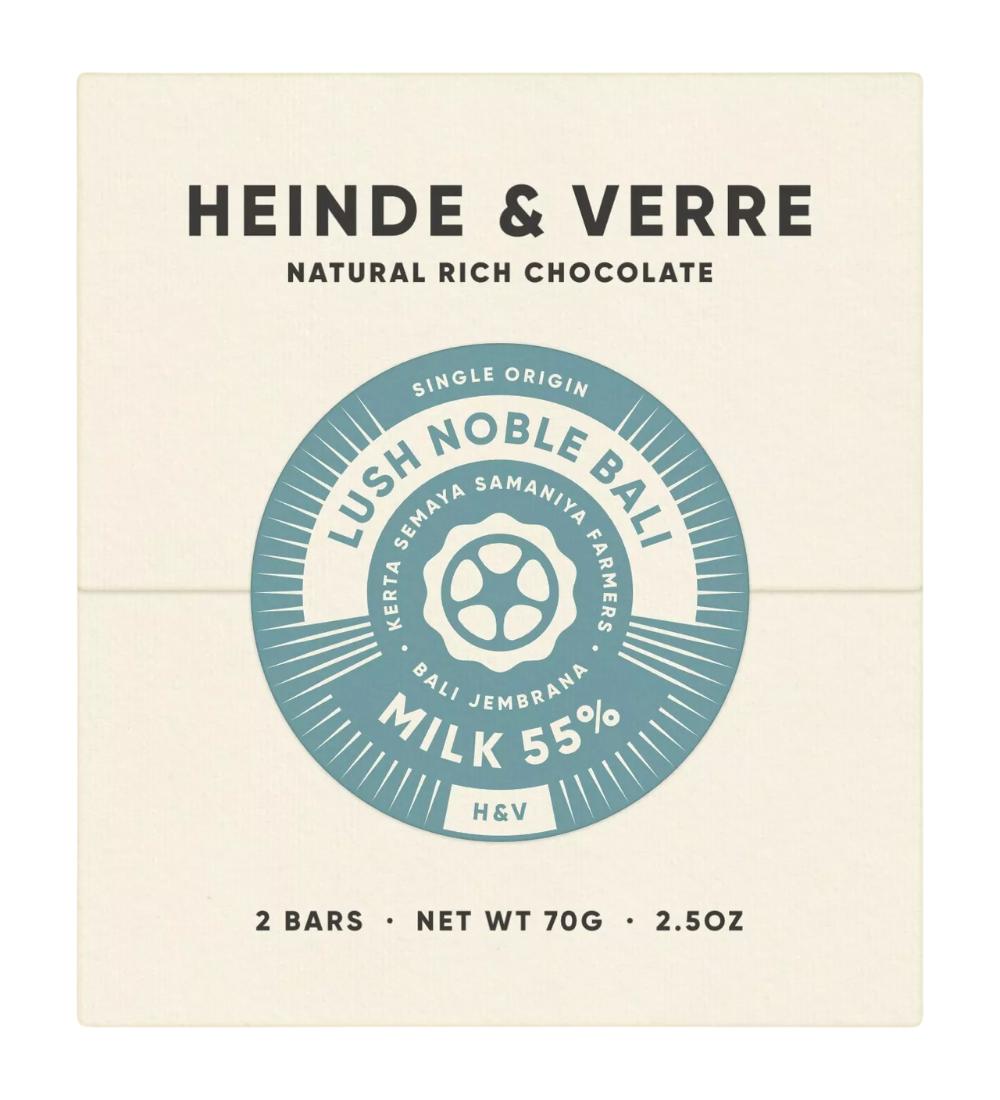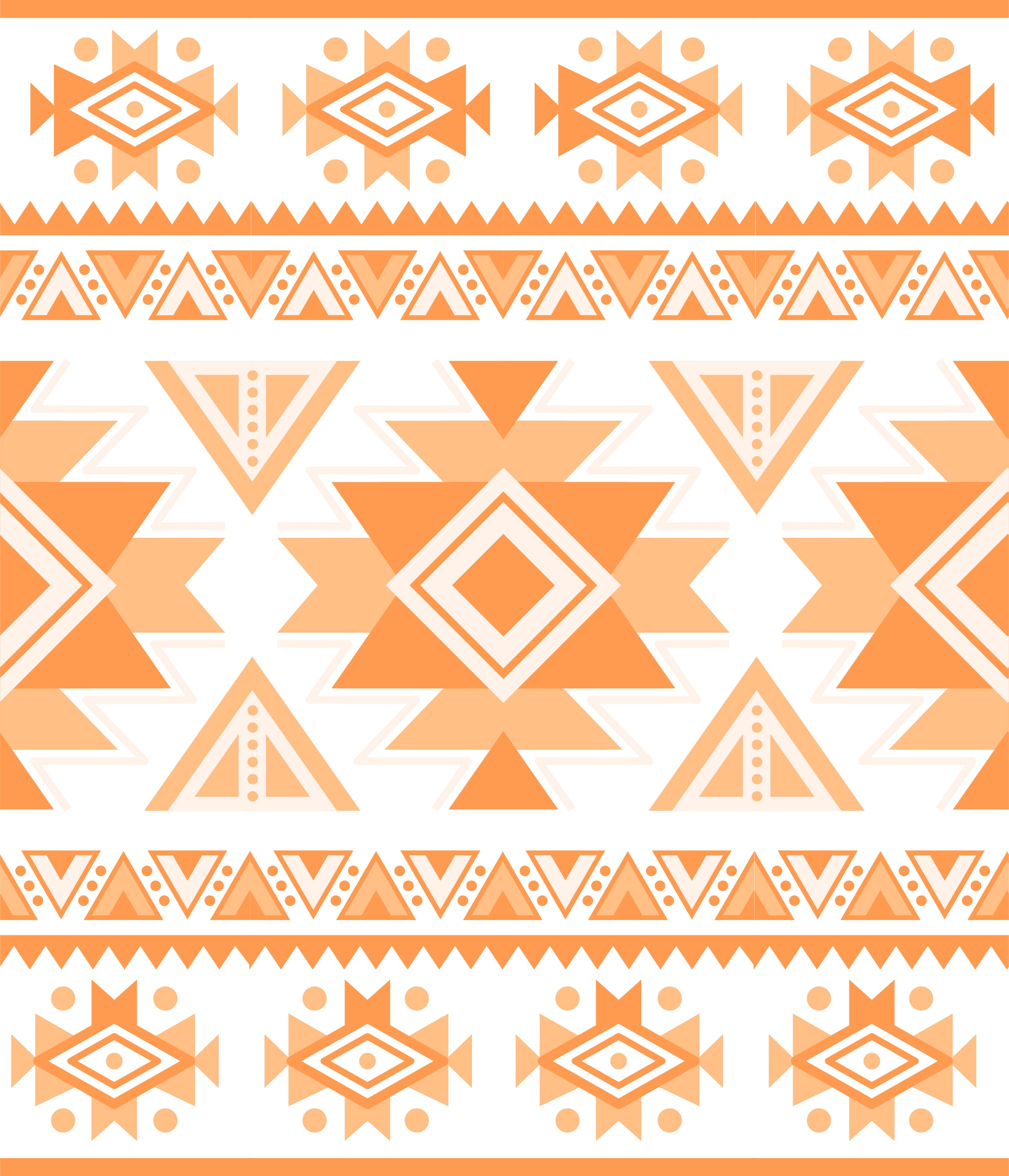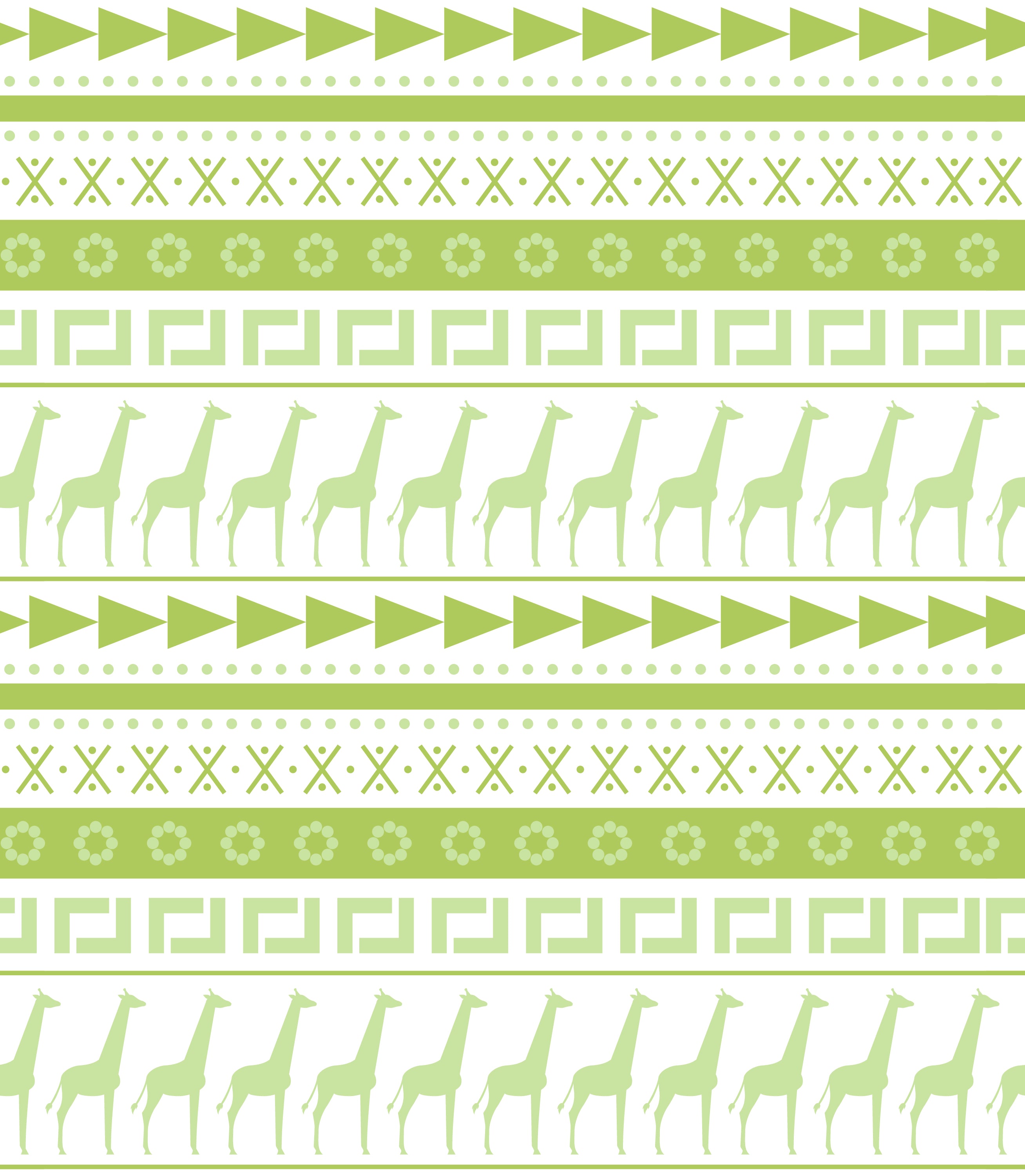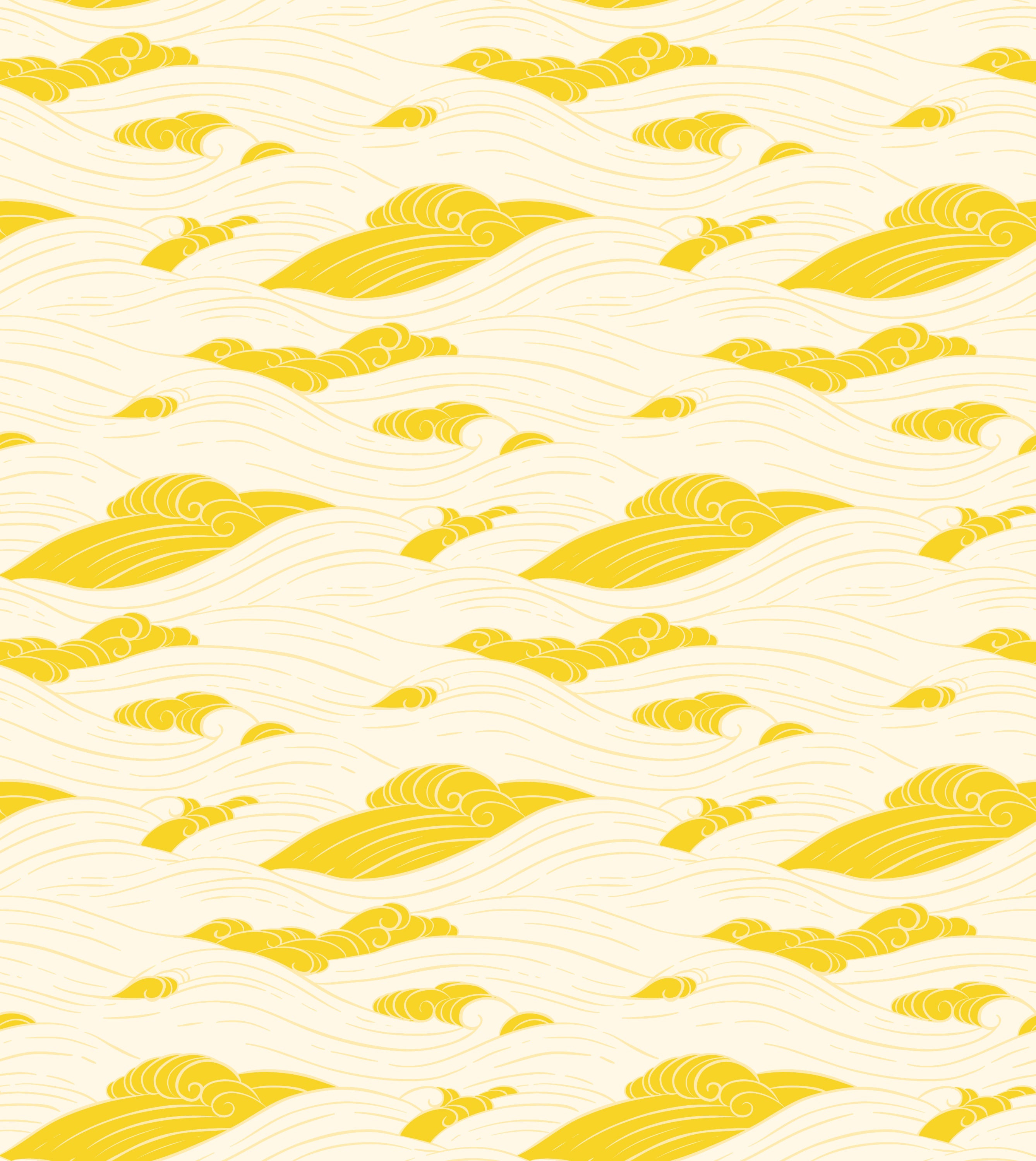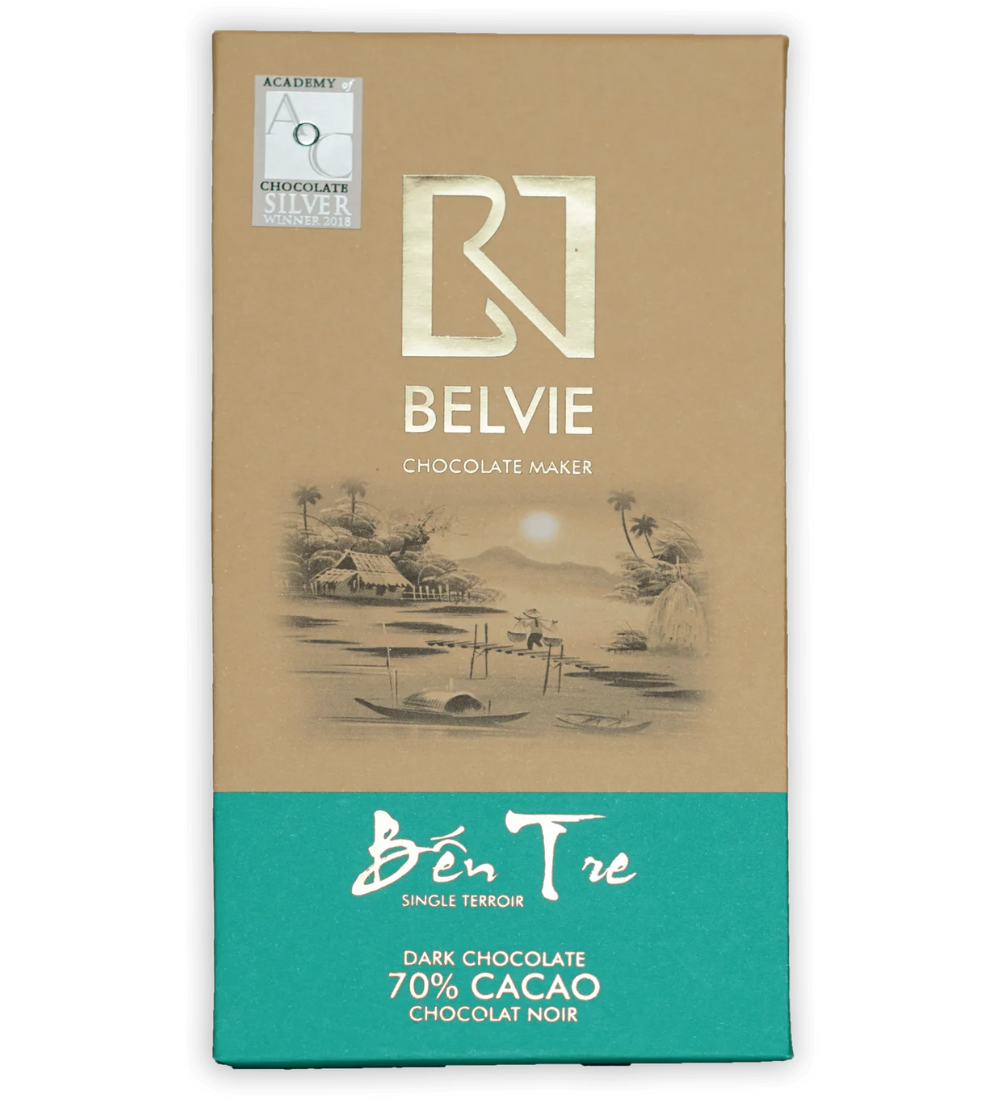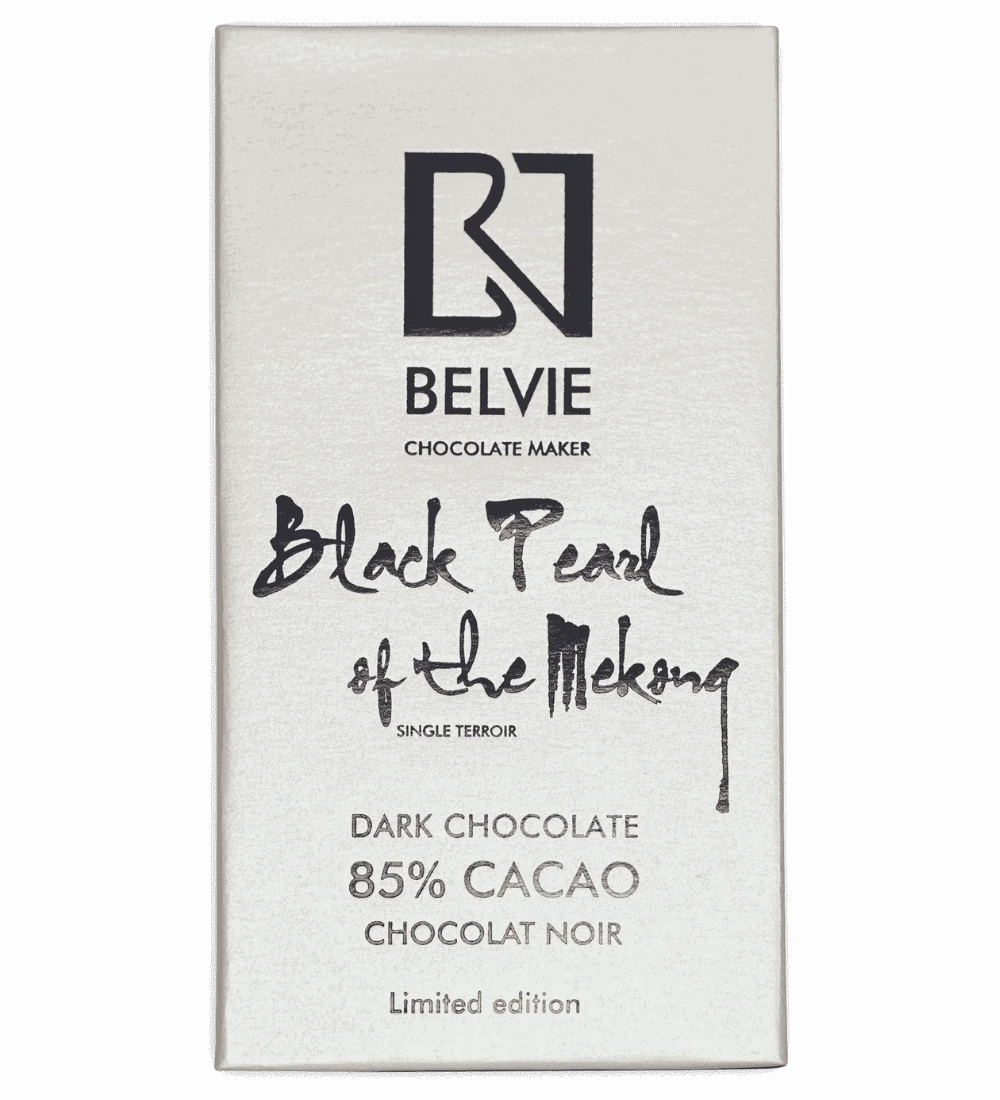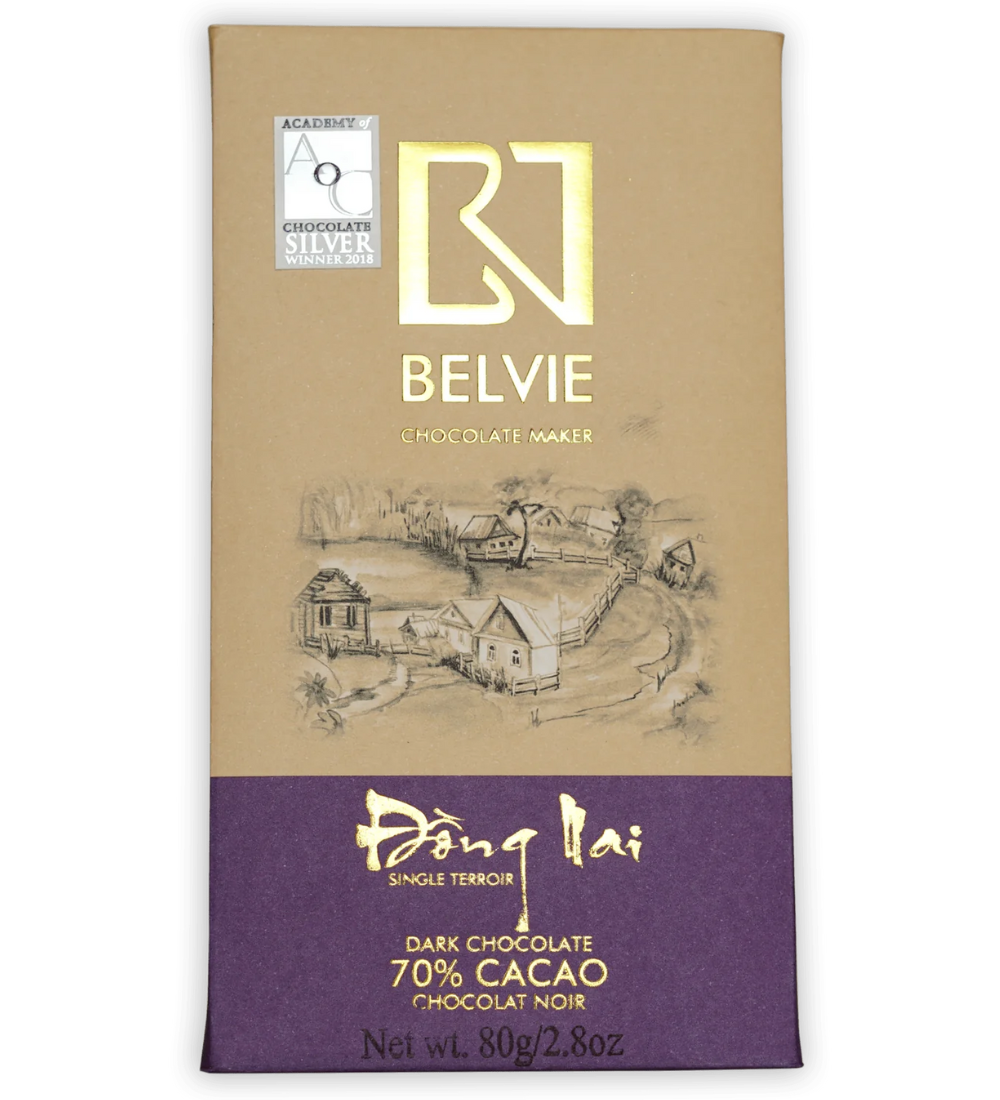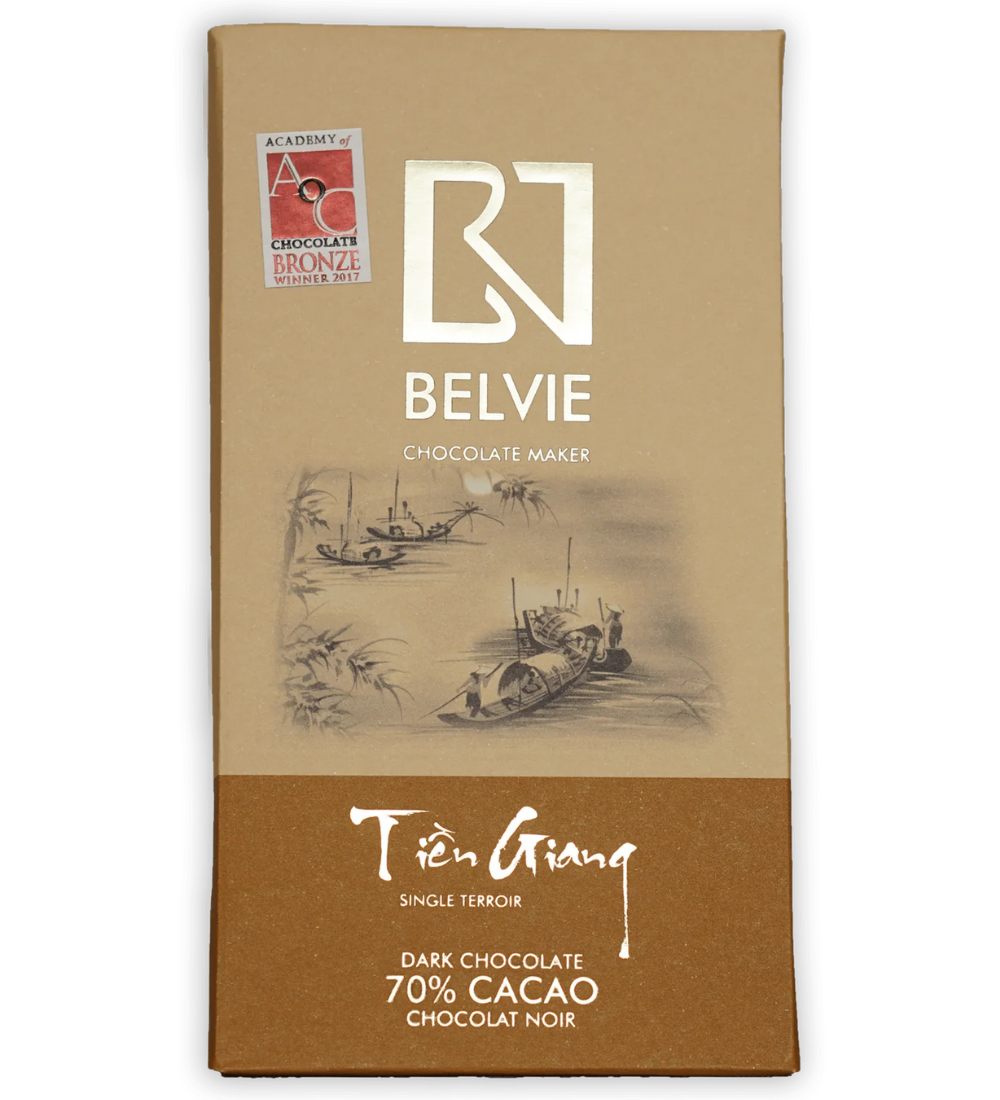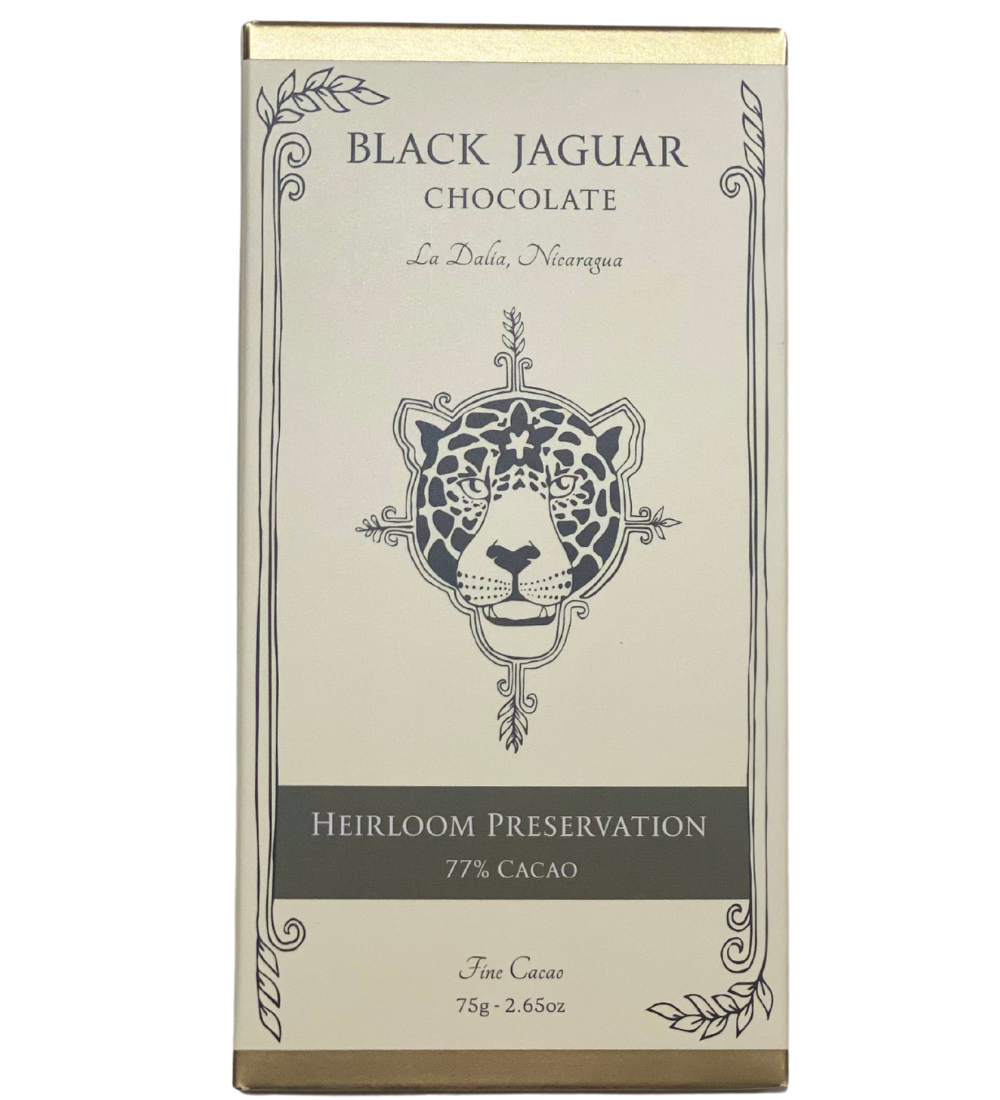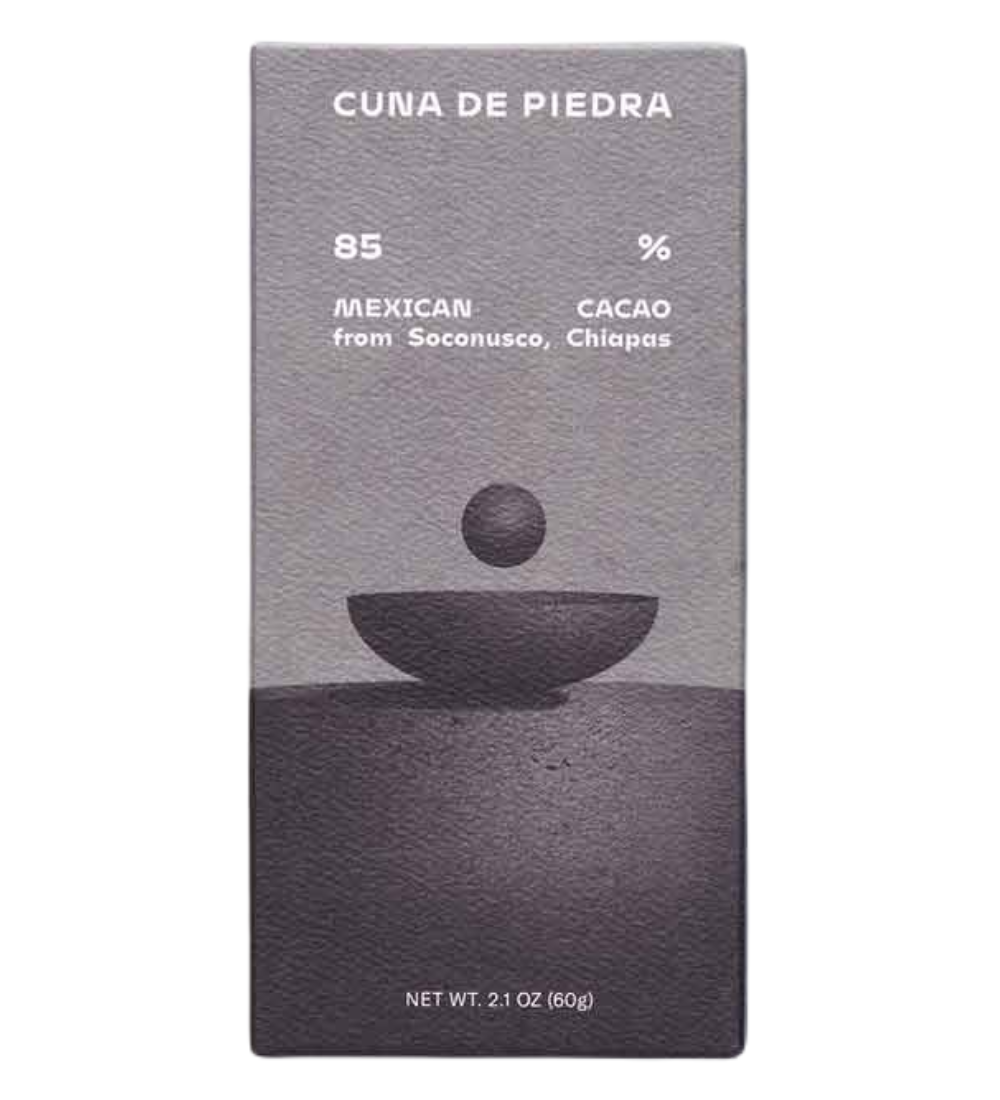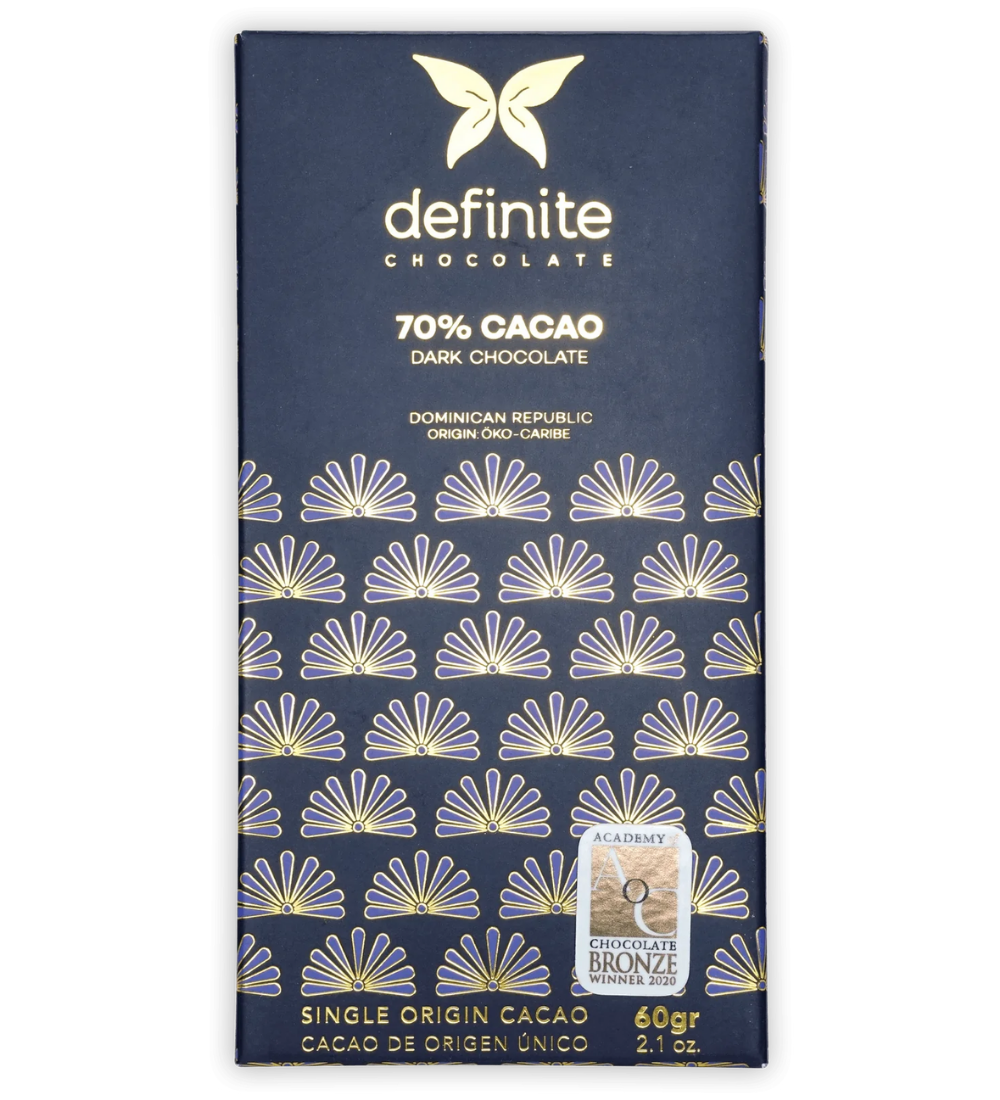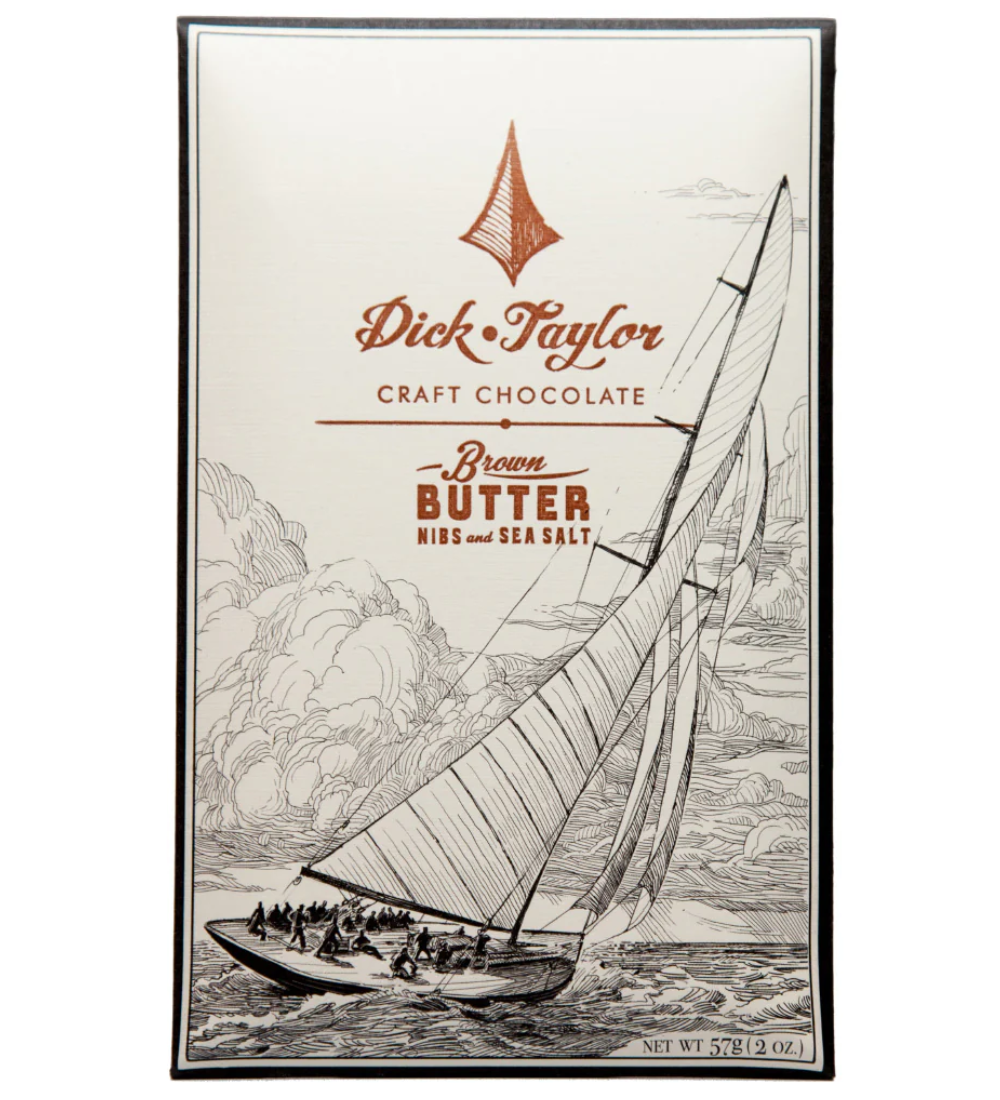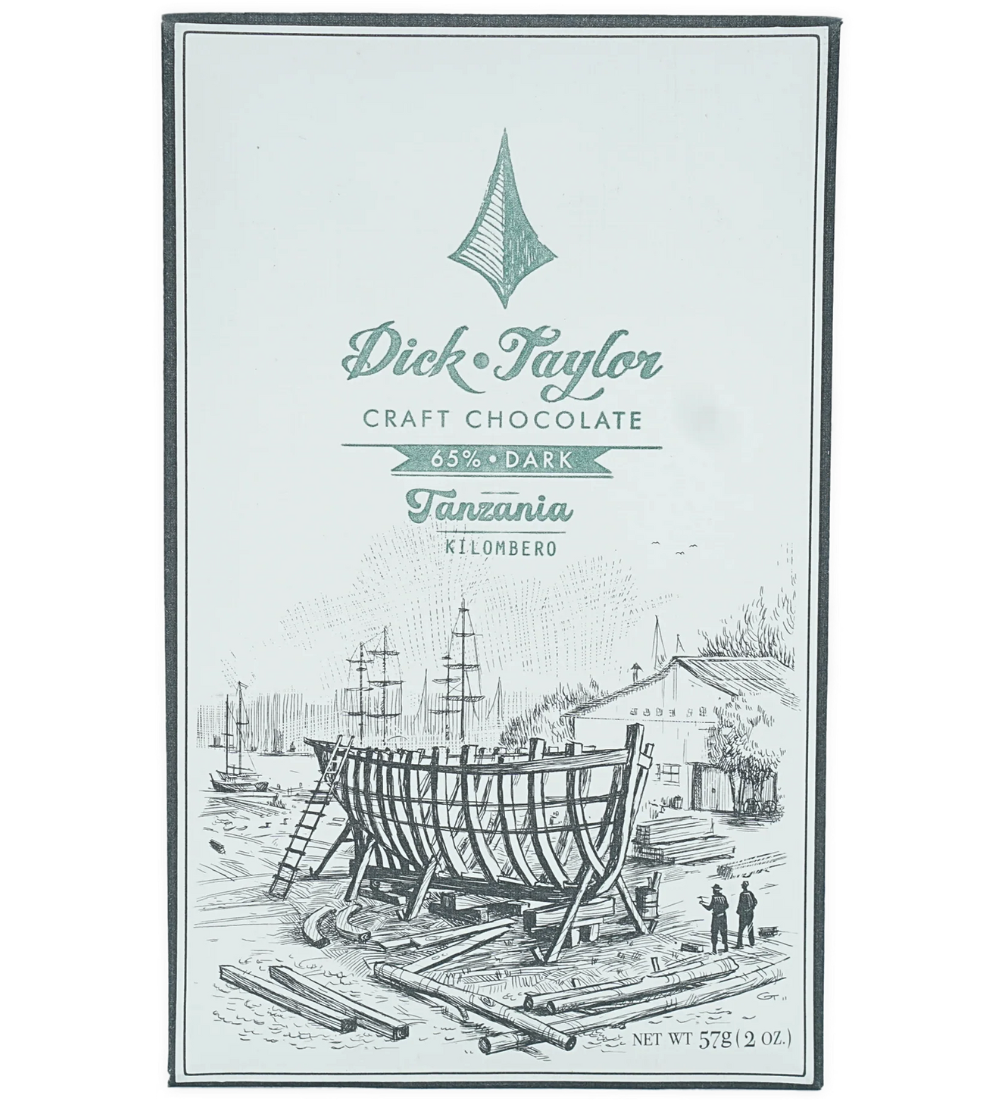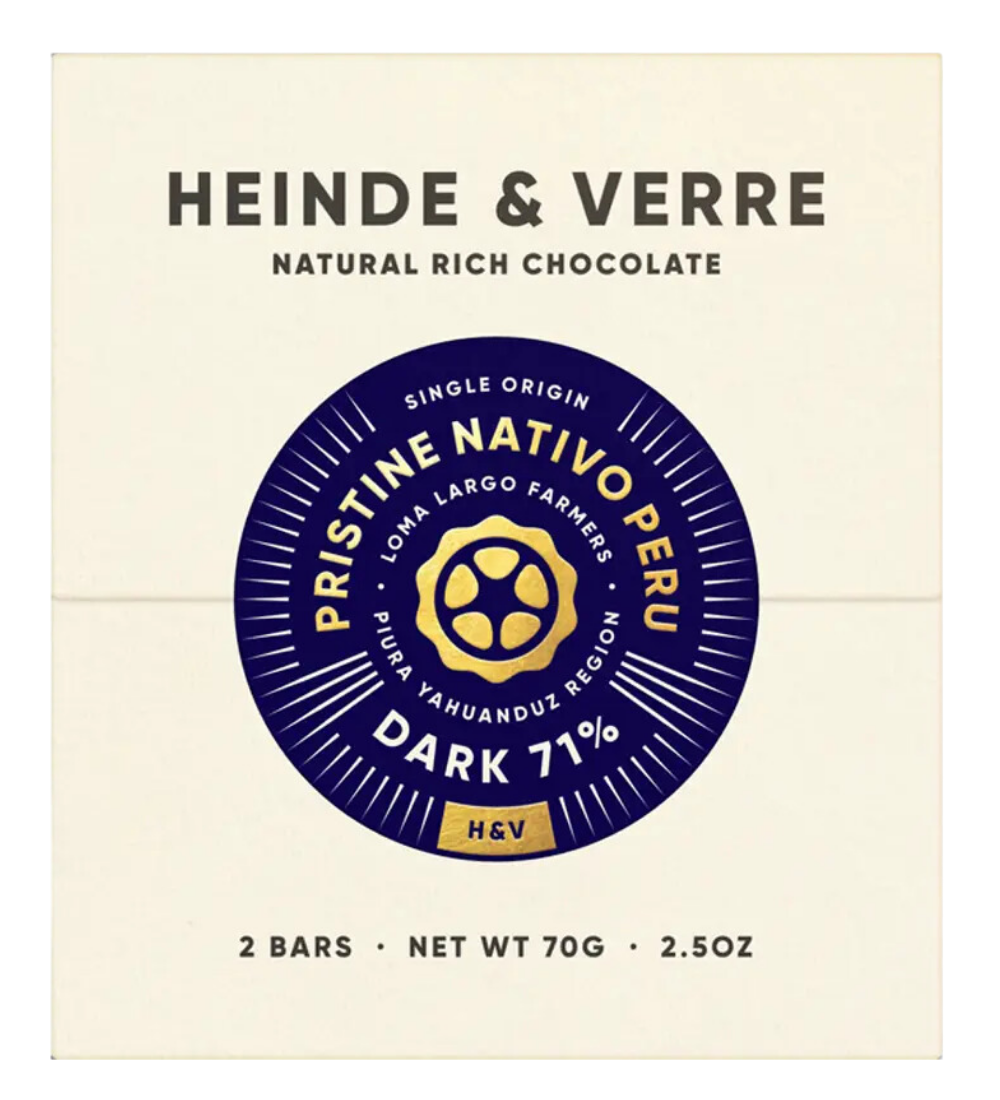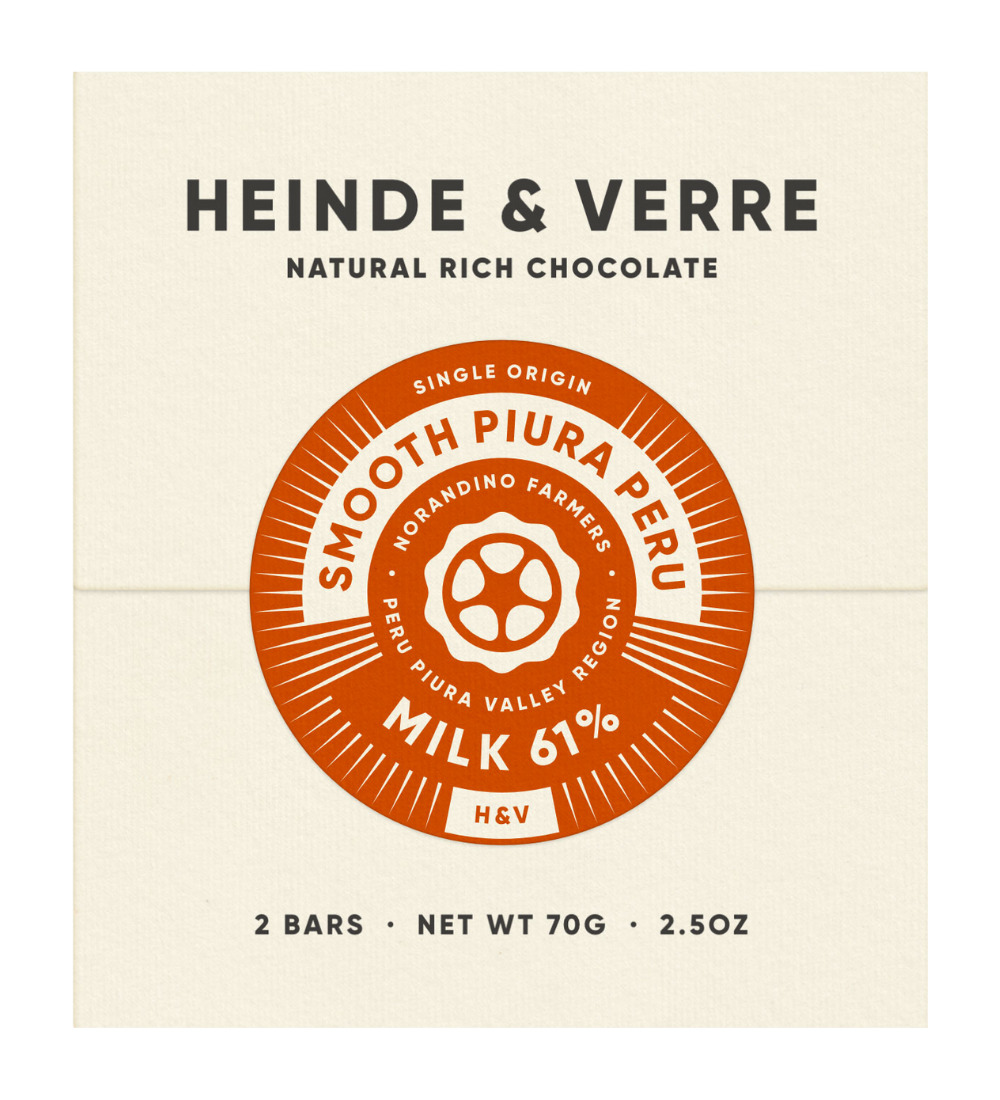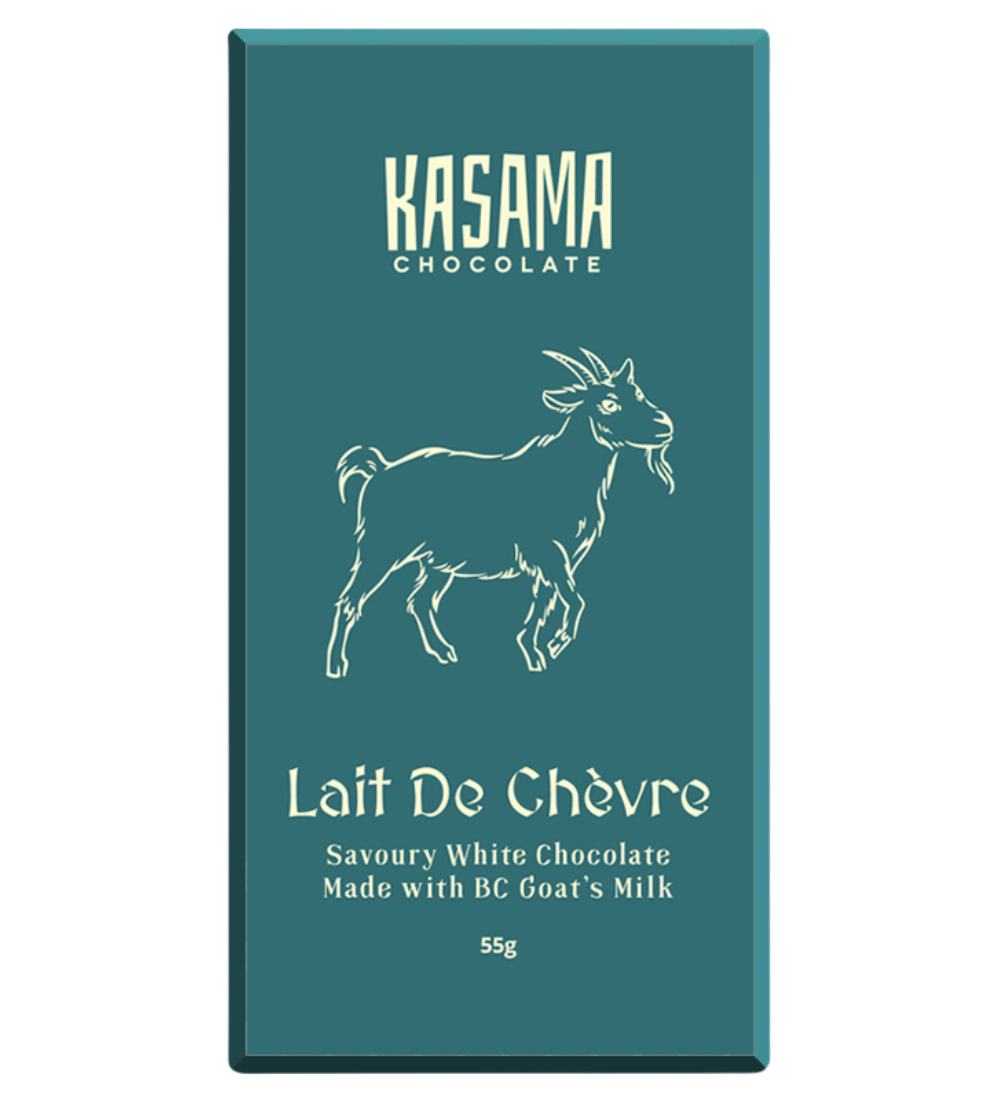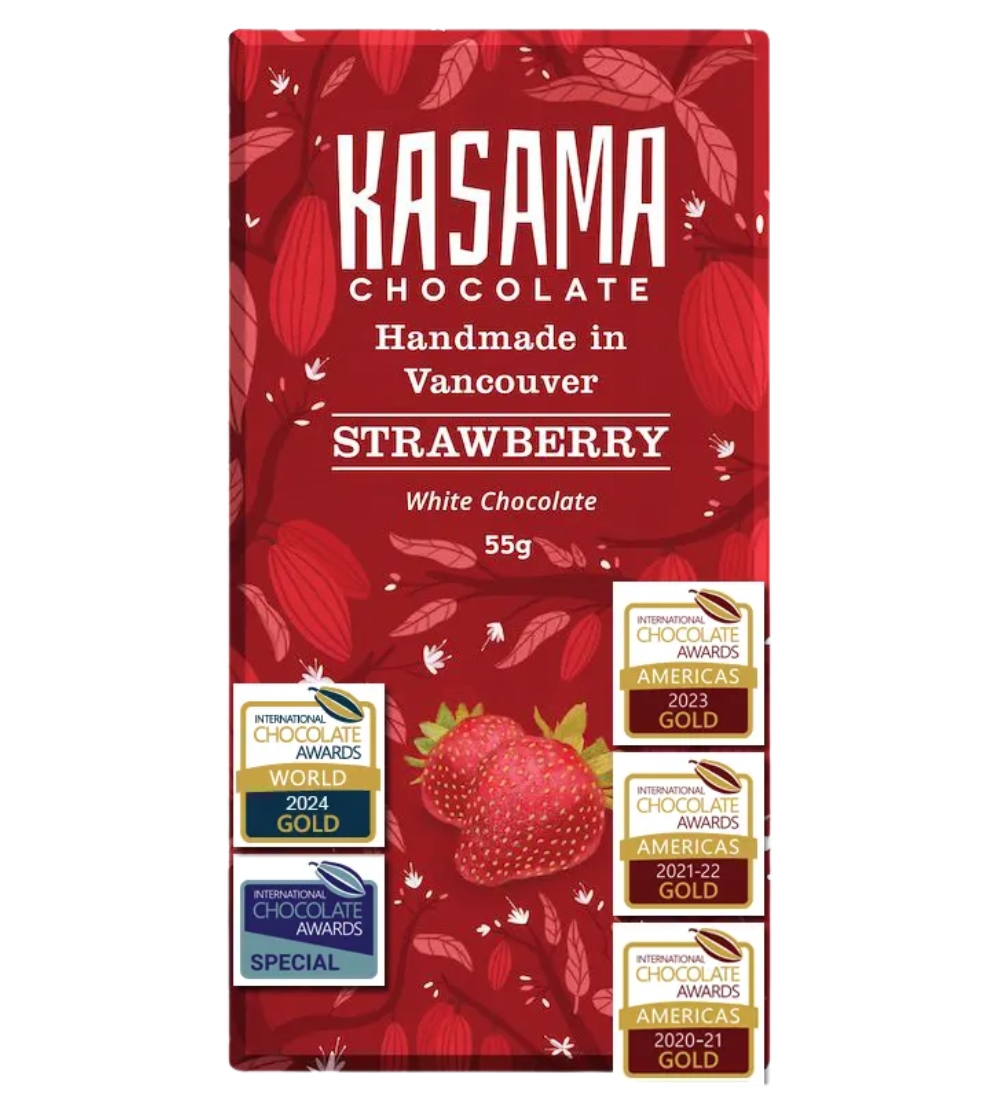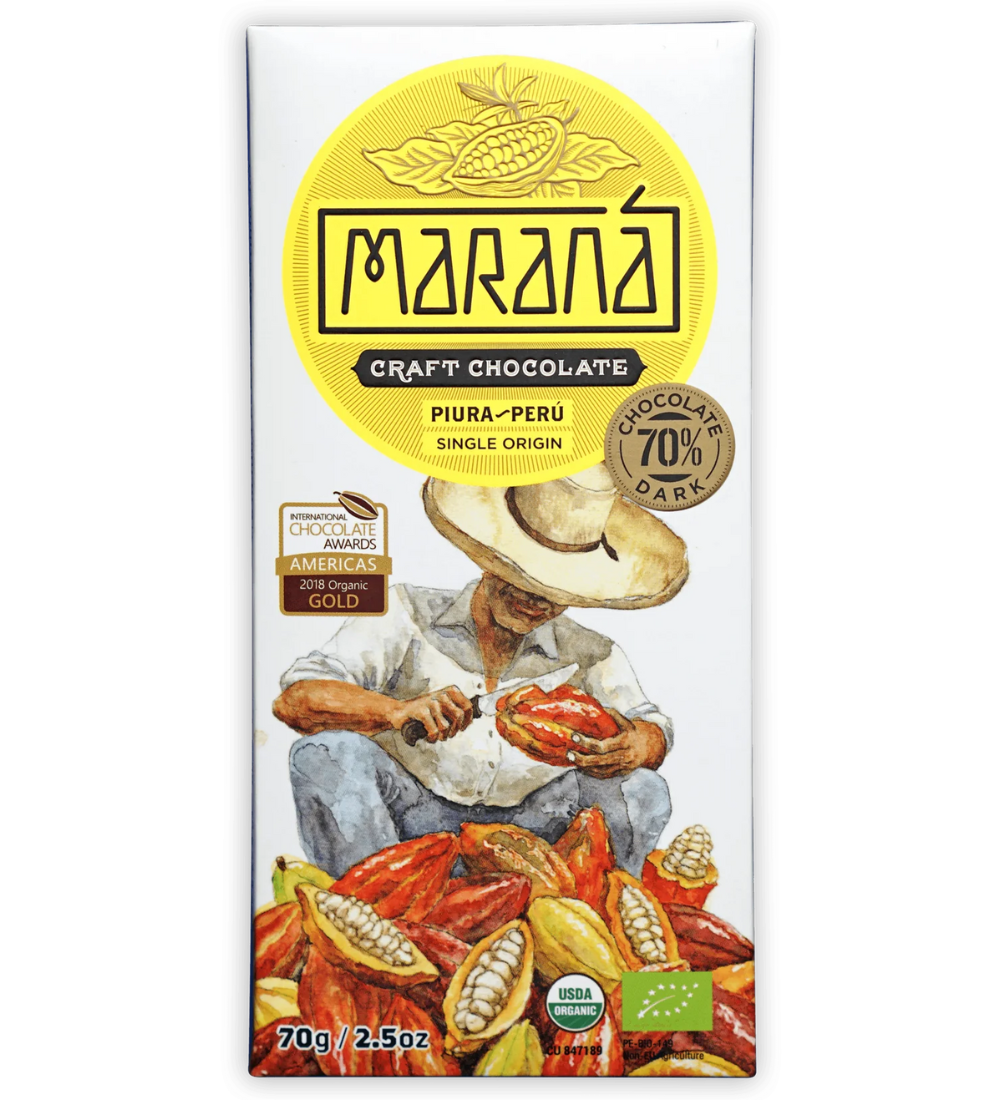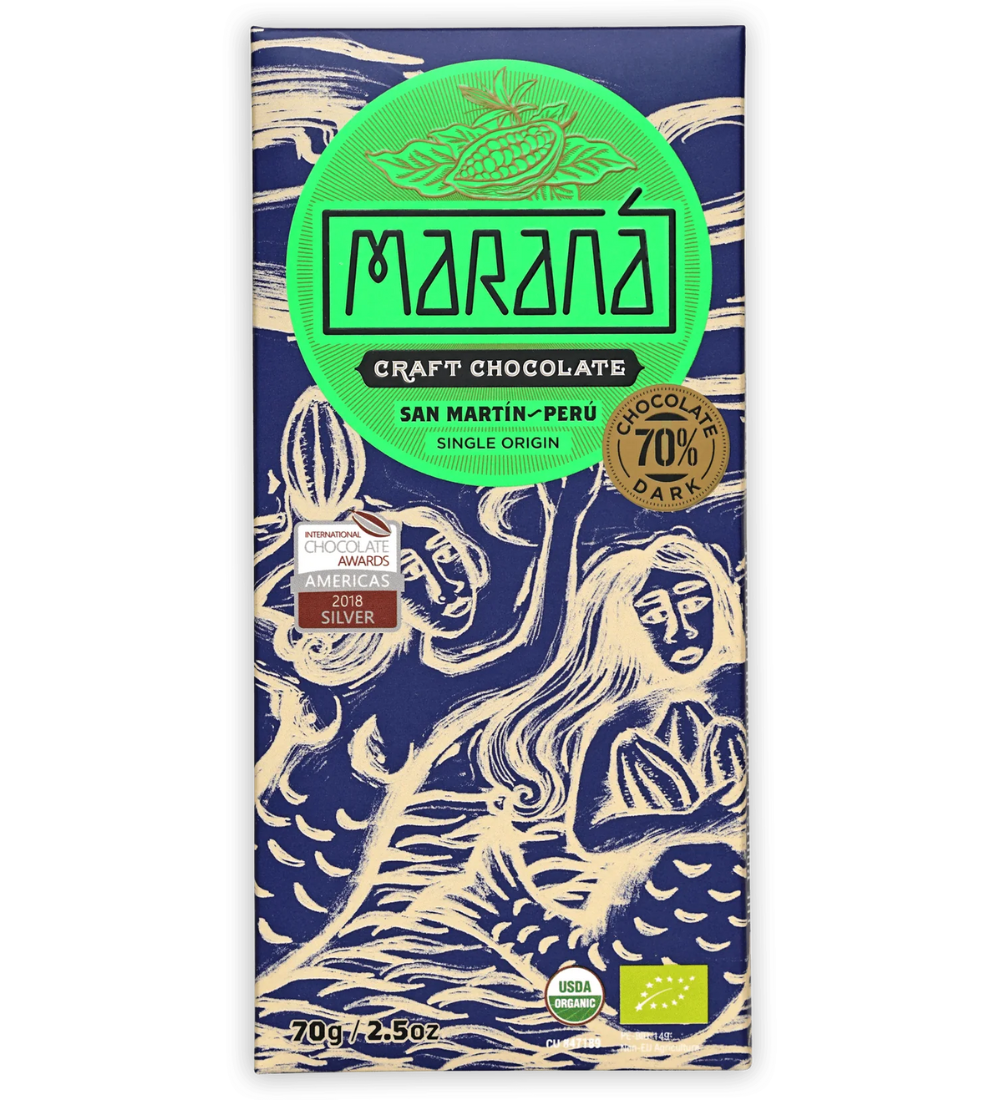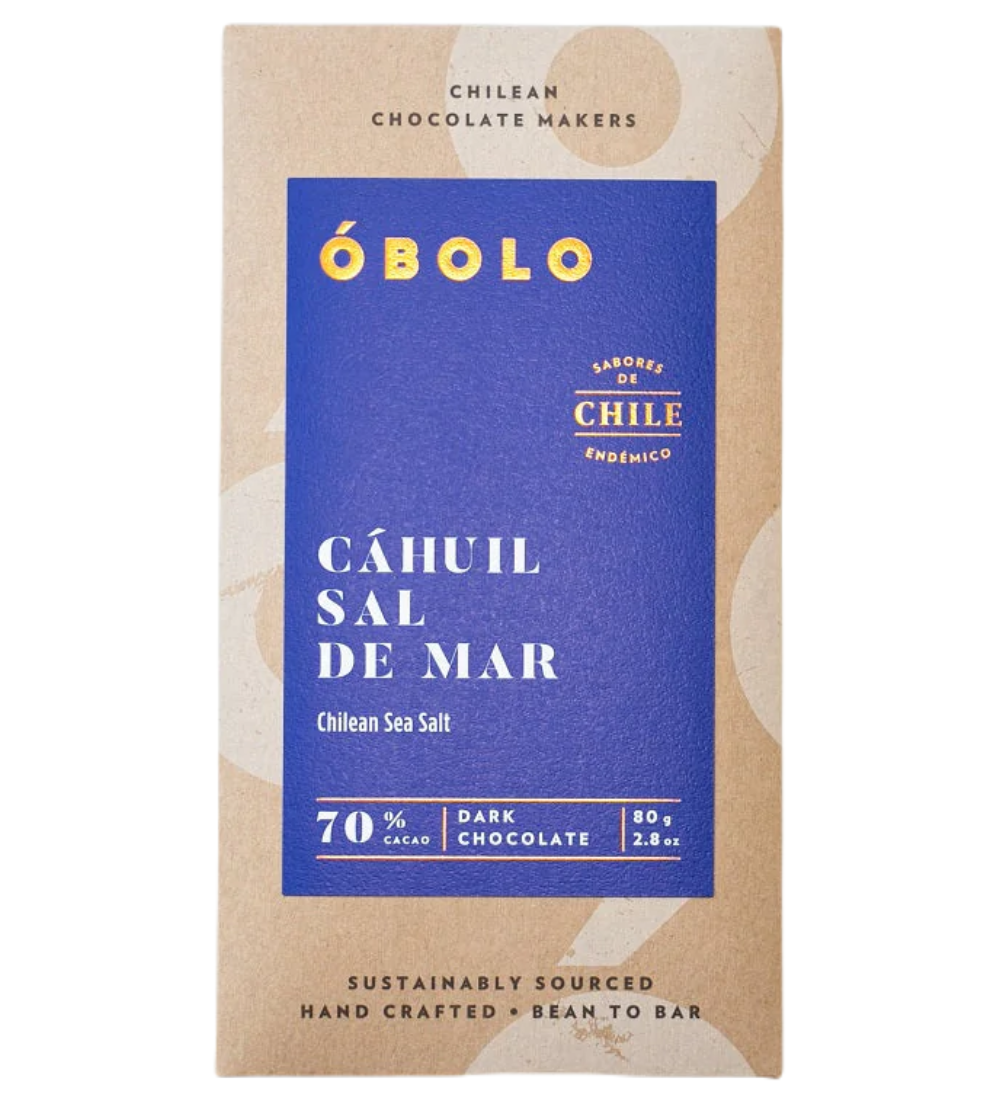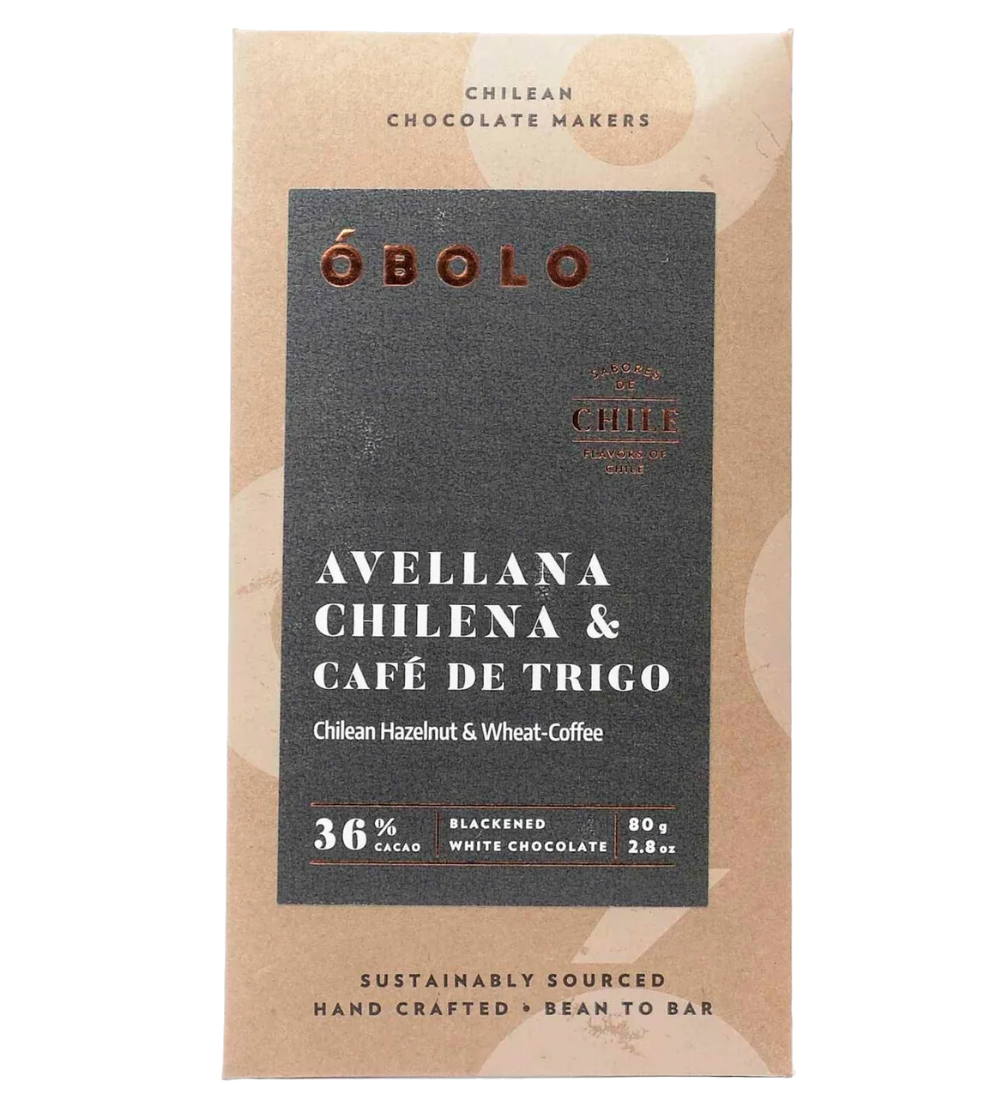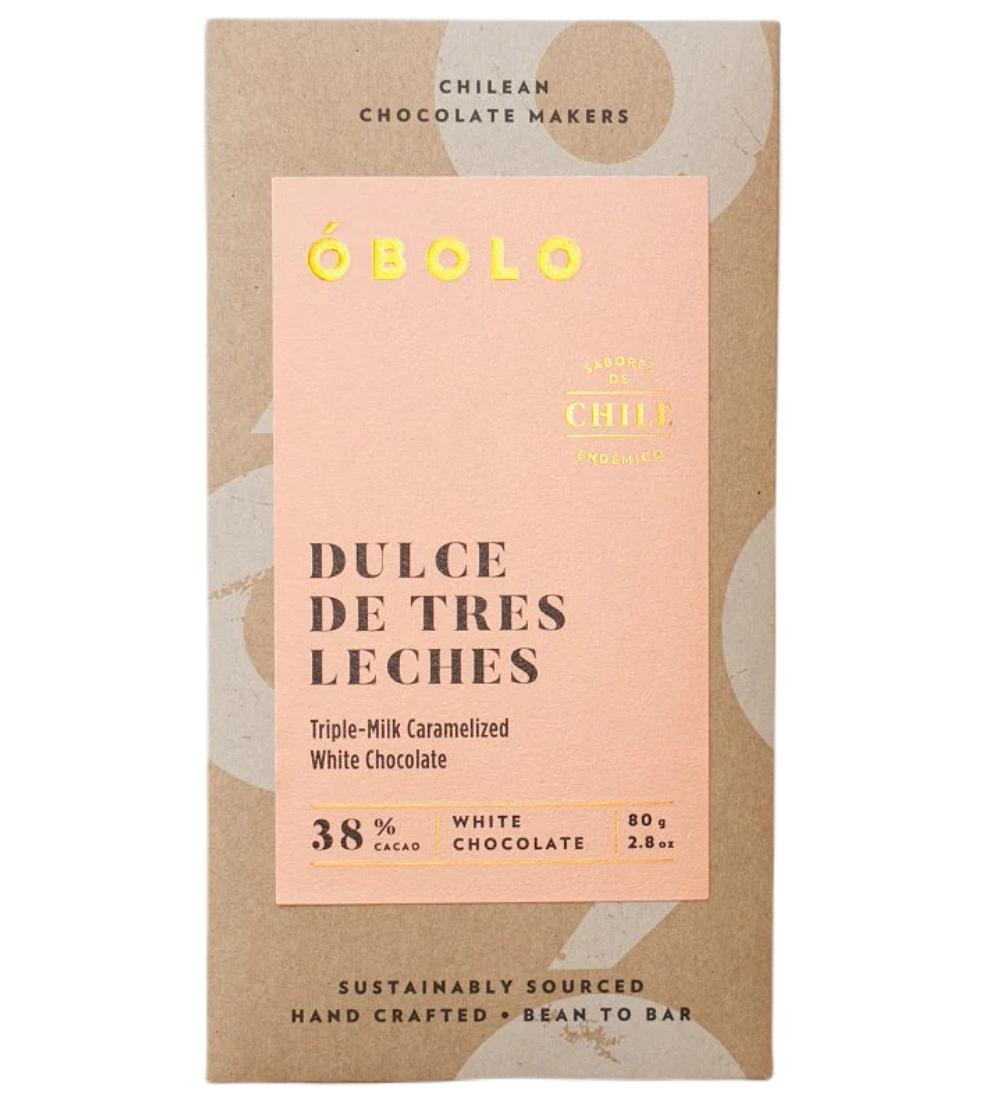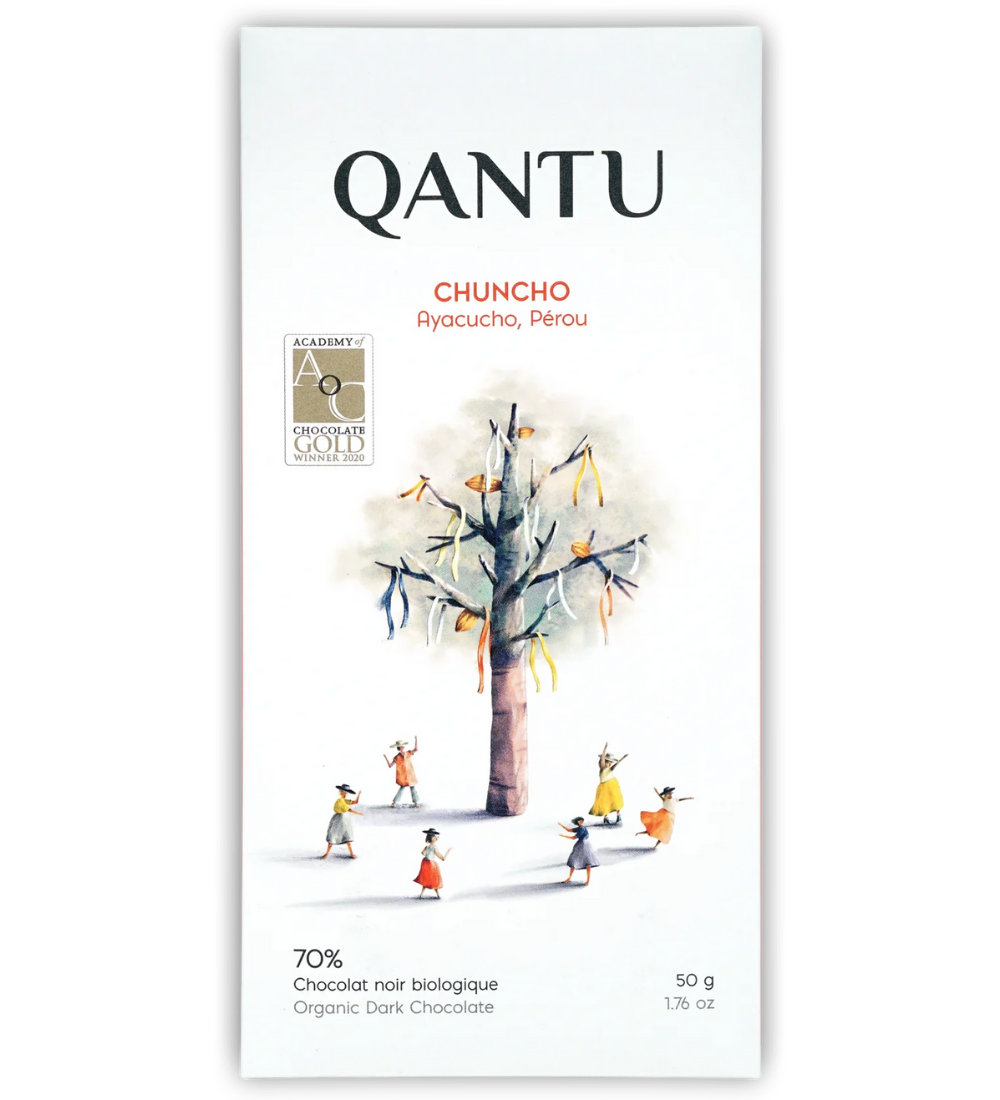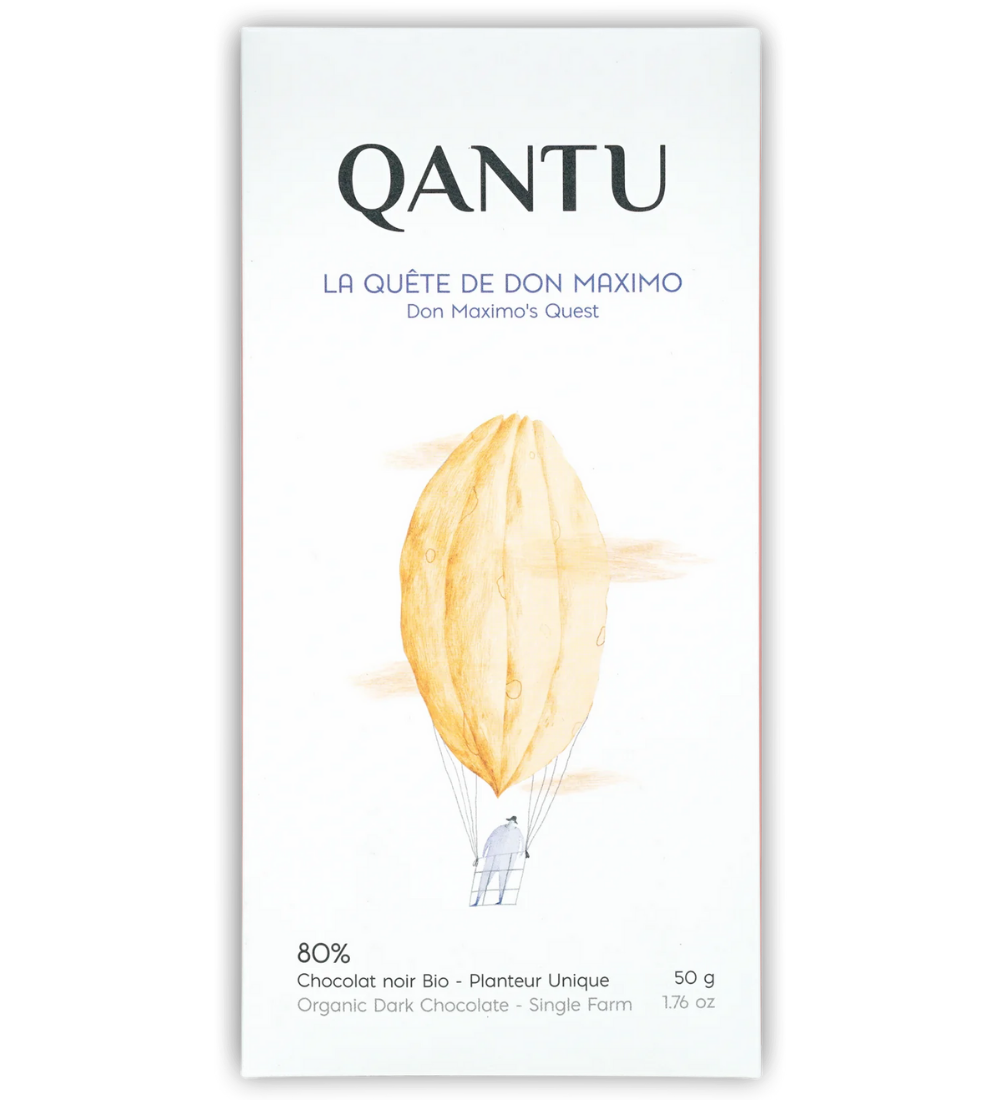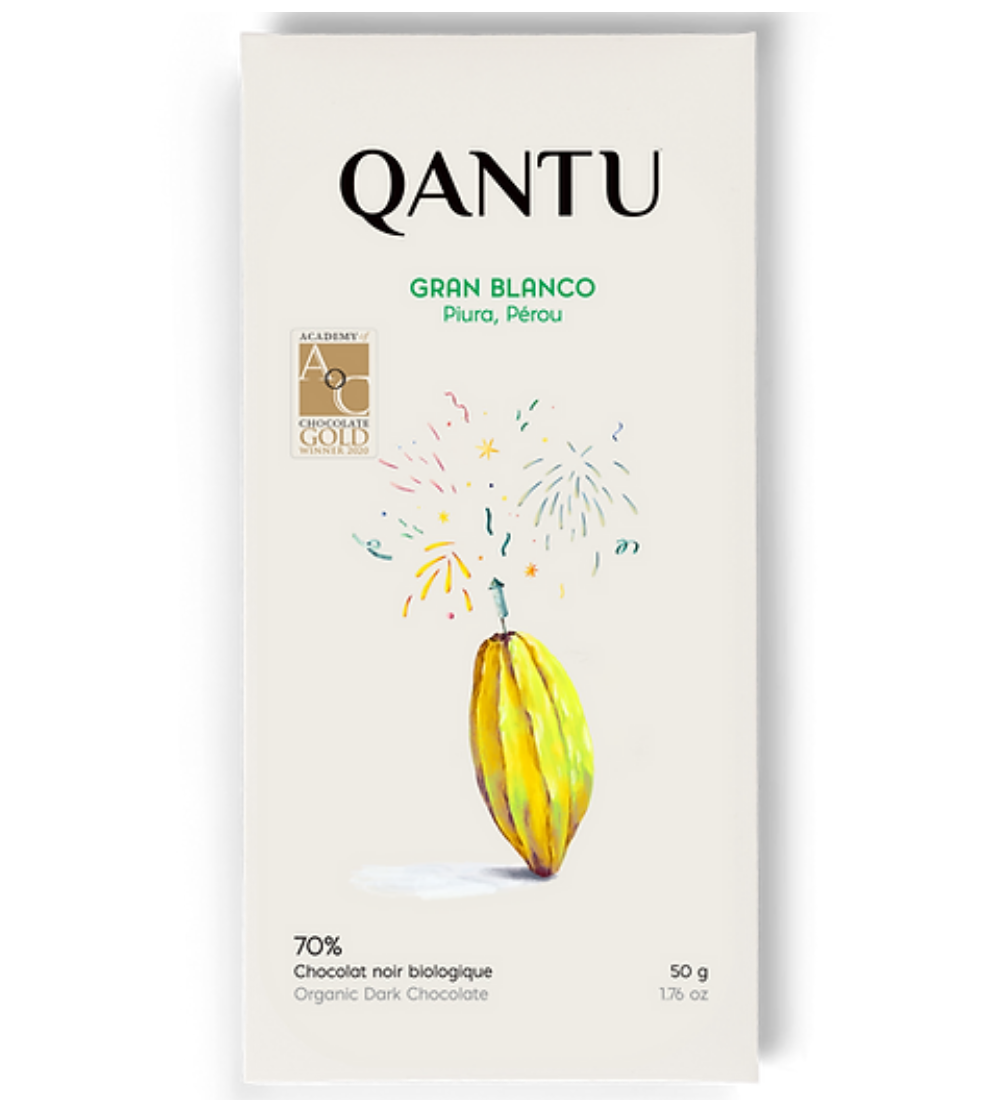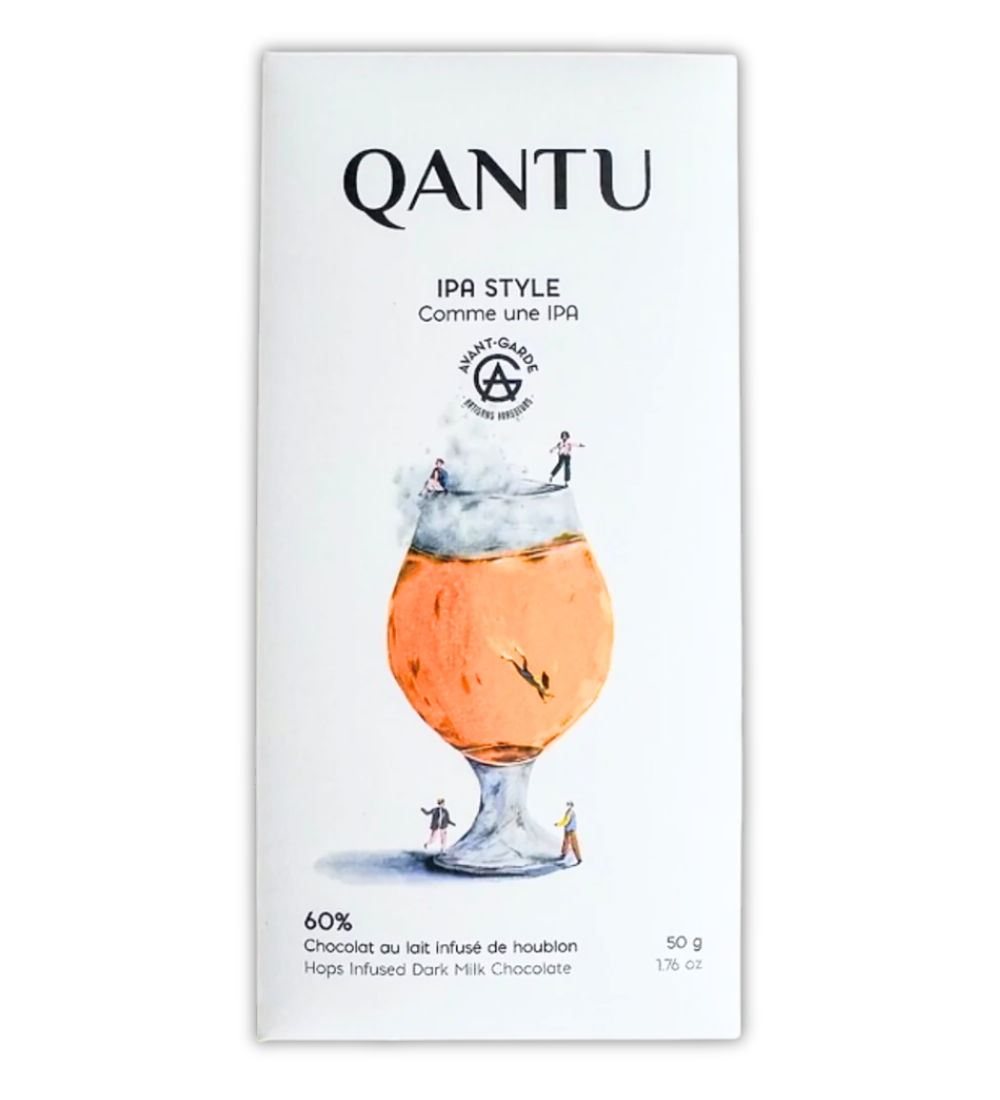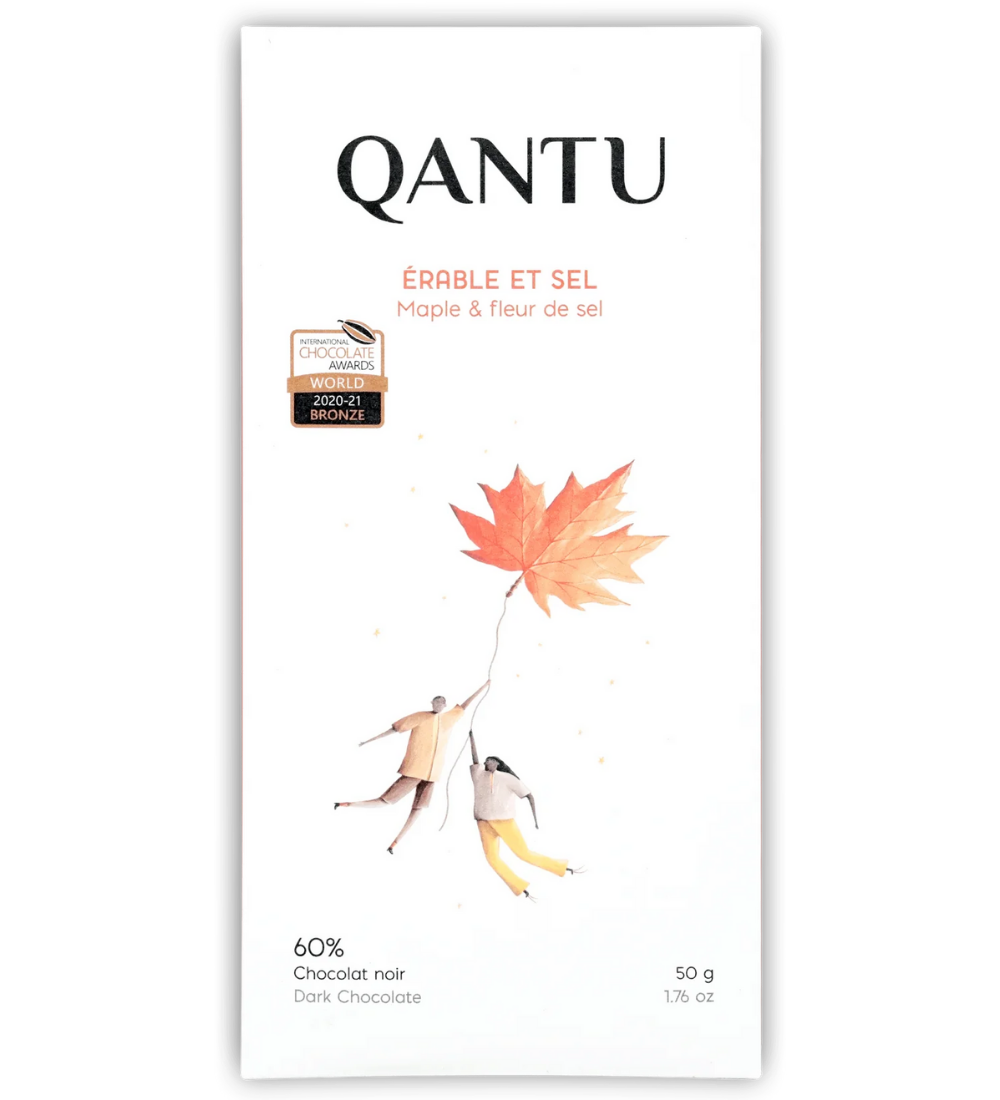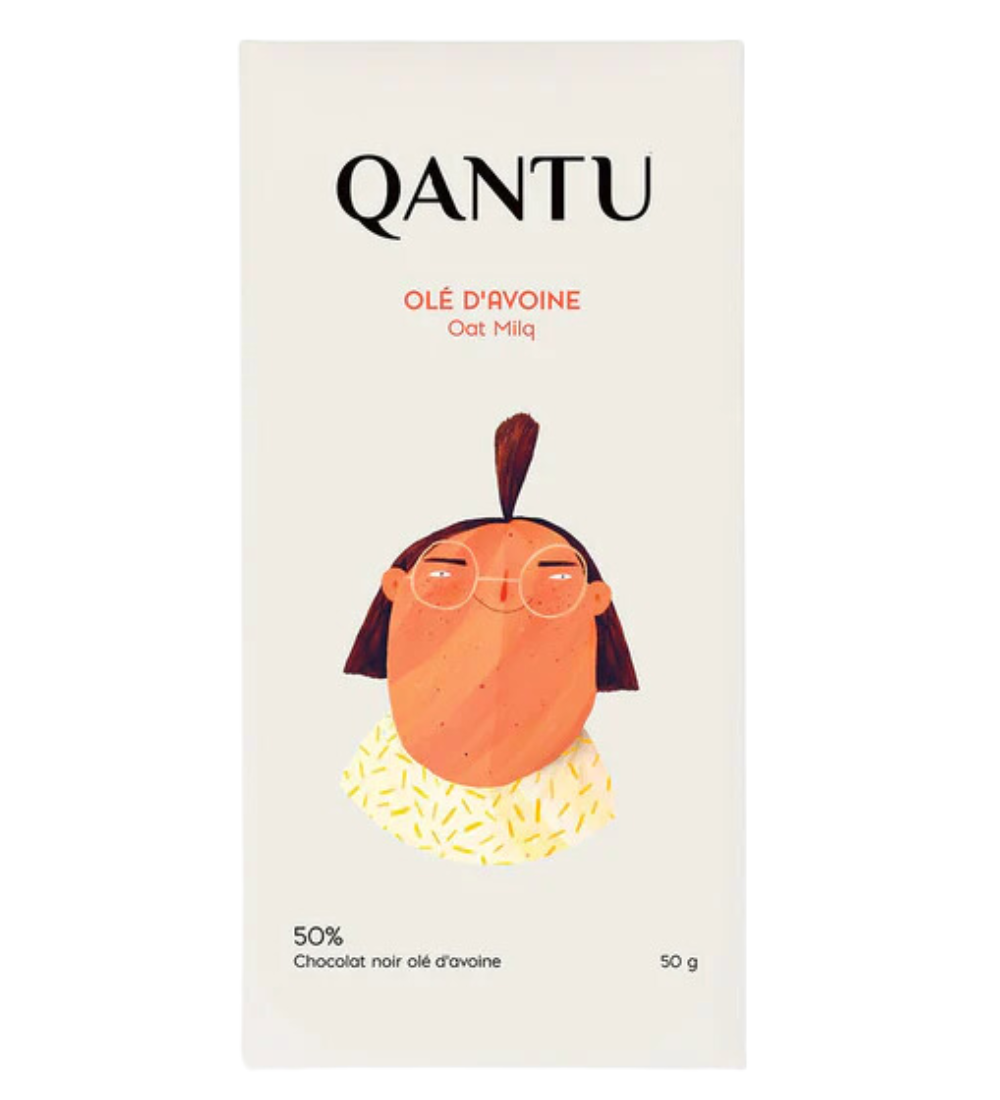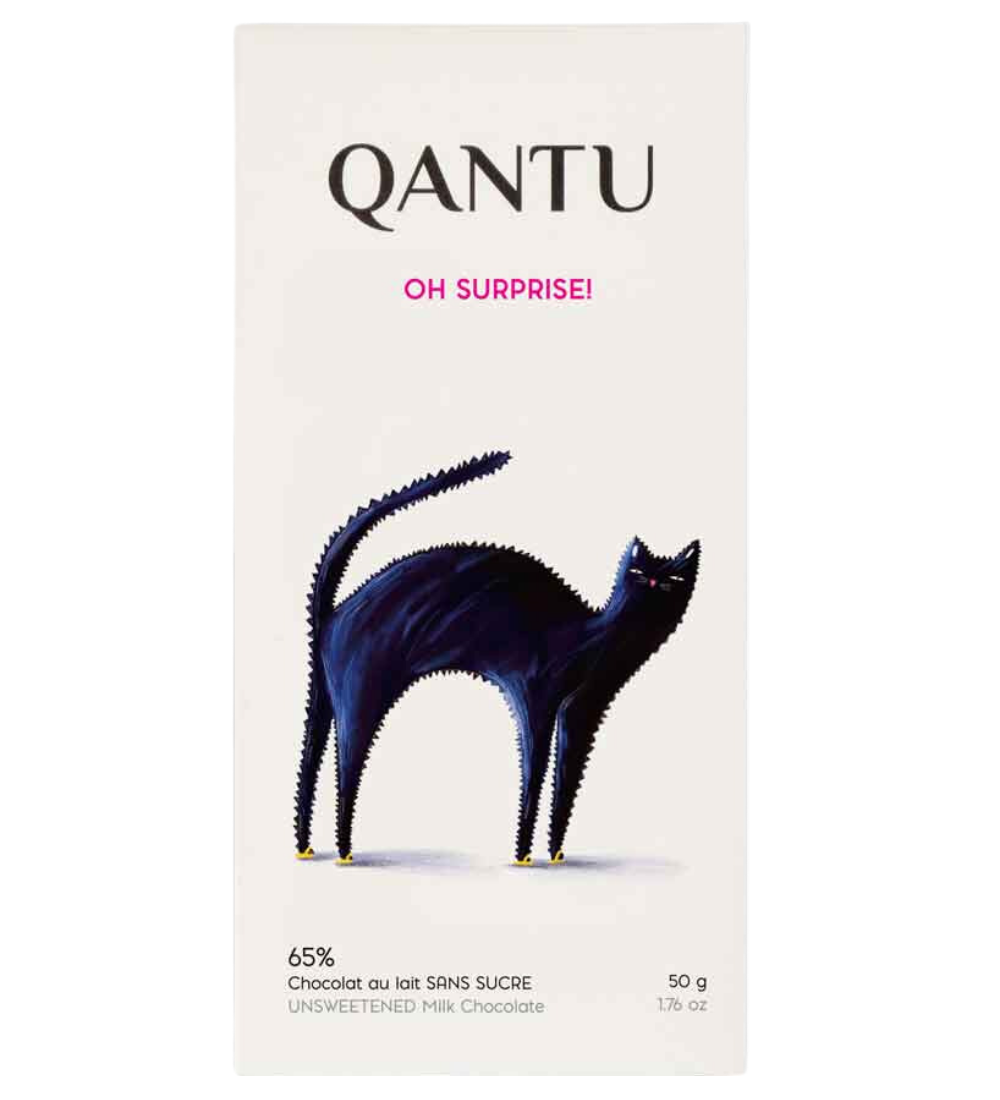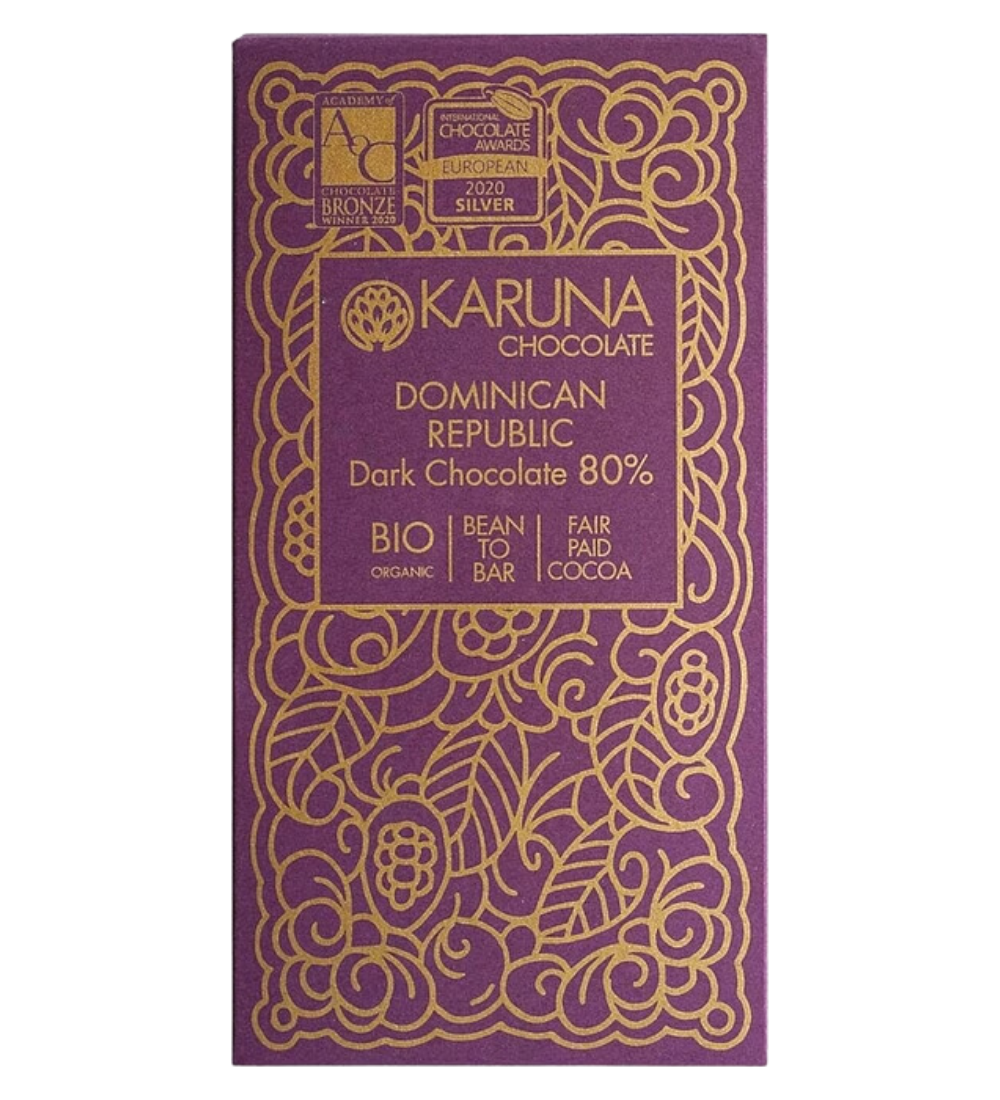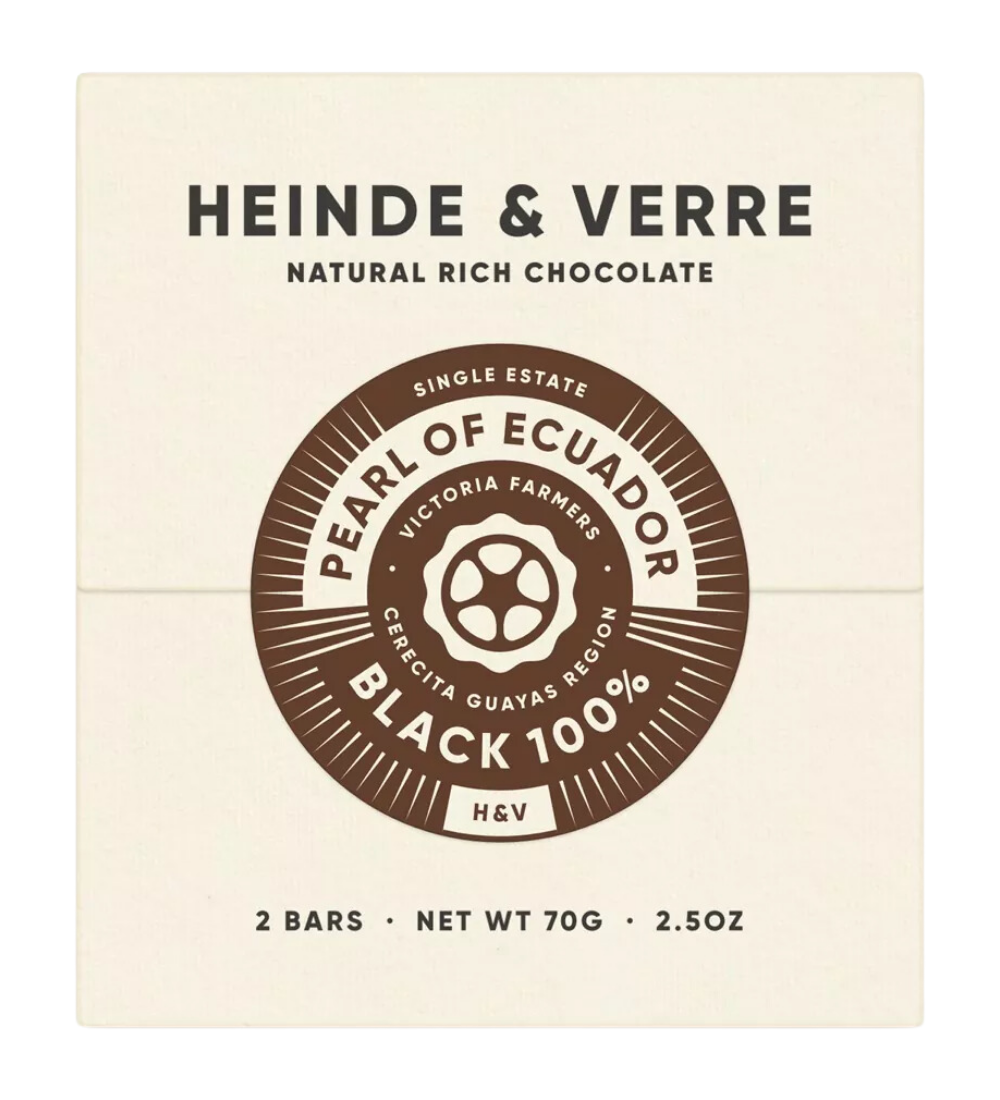The Amazonas region of Peru is believed to be home to around 15 distinct cacao varietals. This bar is crafted using one select type, organically grown by friends of the producers. The chocolate boasts a rich and dark flavour profile—among the deepest you'll encounter—but also features bright, balancing notes of grapefruit, orange, and rose petal, culminating in a delightful finish of brownie and dark honey.
Qantu Bagua 70%
Cocoa Origin: Peru
Producer Country: Canada
Weight: 50 g
Adding product to your cart
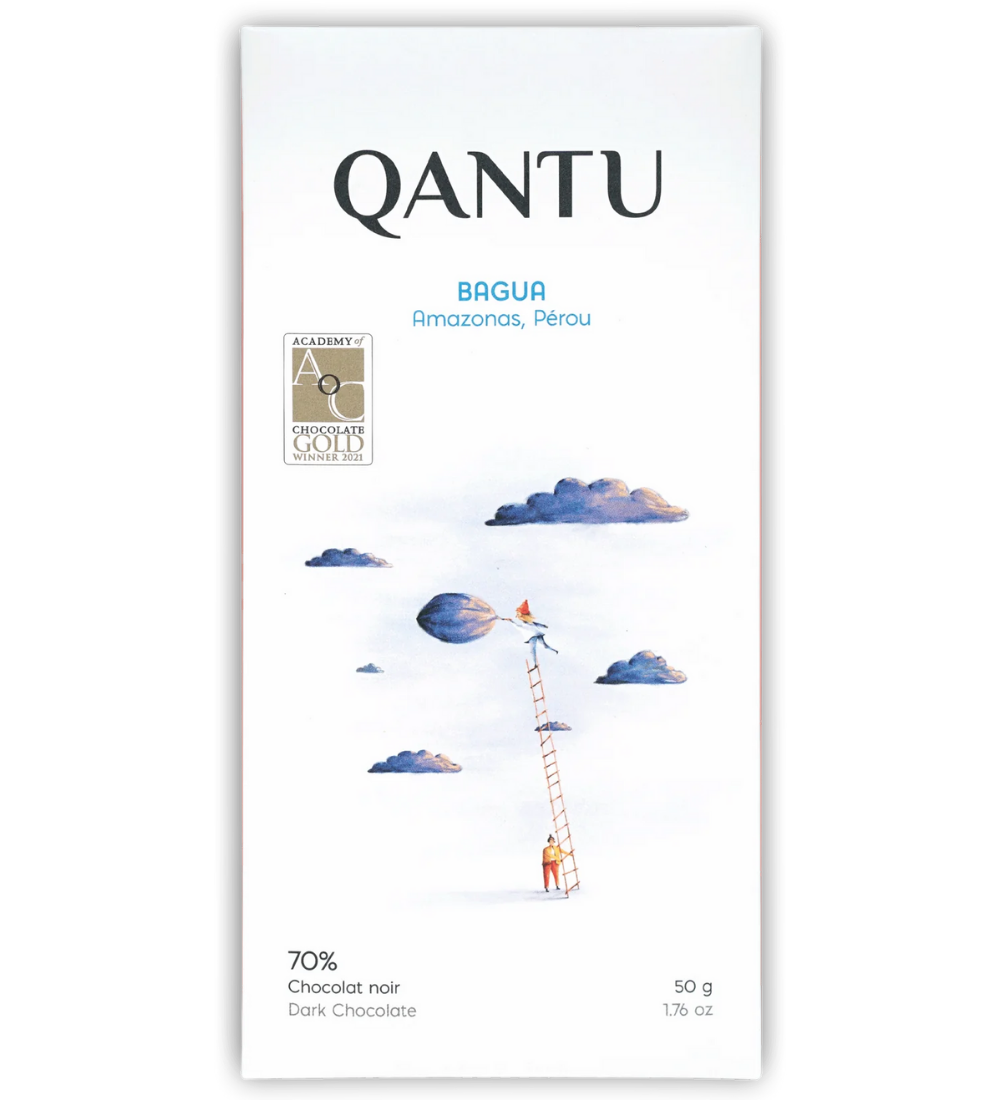
Qantu Bagua 70%
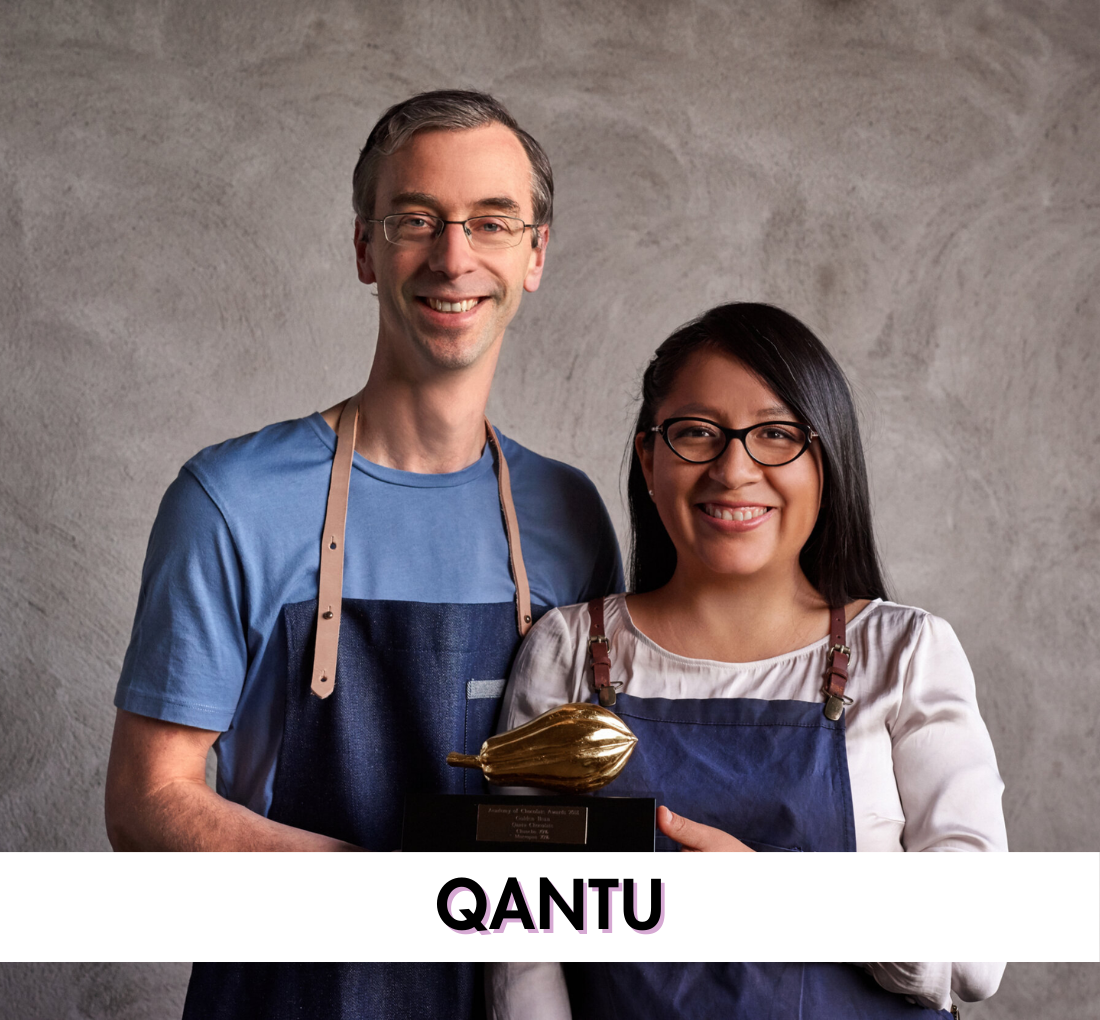
Qantu is physically based in Montreal, Canada, but its spiritual home is in Peru, where its founders, Elfi and Maxime, met and discovered their love for chocolate. It's also where they found inspiration for their name, taken from the country’s national flower (pronounced 'Kantu', from the Quechua language). Peru is also where the two source all their beans directly from cooperatives, importing them without any middlemen. Elfi and Maxime often visit the farms where possible, or meet with cooperatives in Lima to ensure good post-harvest and business practices. They also always sample the beans first to evaluate their quality and characteristics. Beans are important: Qantu's mission is to promote and preserve native cocoa beans. They educate people on the differences between hybrid and native cocoa beans and the importance of preserving native beans for biodiversity. The two have accumulated so much award bling you need to wear sunglasses when viewing their accolades!
Shop More QantuAmazonas, Peru, is a department located in the northeastern part of the country, bordering Ecuador and forming part of the extensive Amazon Basin. This region includes the Marañón Valley, an important biogeographic boundary with a unique climate that acts as a natural barrier. Due to rain shadow effects, the Marañón Valley is hot and dry, contrasting sharply with the cool, rain-filled Andes. This isolation has led to the evolution of numerous unique species within its habitats. It reaches its greatest width in the province of Bagua. Culturally, Amazonas is rich and diverse, inhabited by indigenous communities who have preserved their traditional ways of life and deep environmental knowledge. This is reflected in the region's cuisine which still relies heavily on foods produced in the jungle, including unique herbs, tropical fruits, and many different animal species, including snakes and freshwater fish.
